Forum Replies Created
- AuthorPosts
-
Tired of the foam I had under them to angle up at the desk….
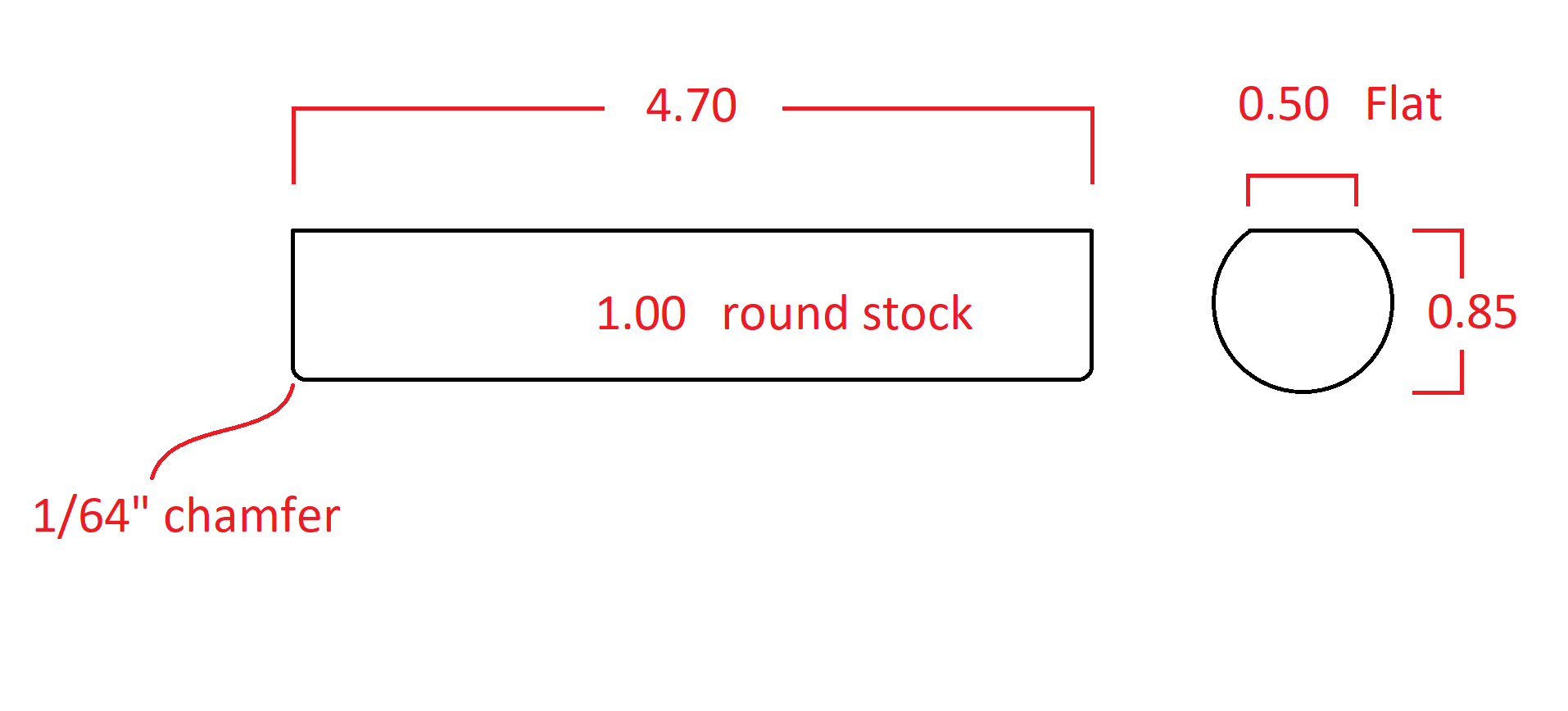
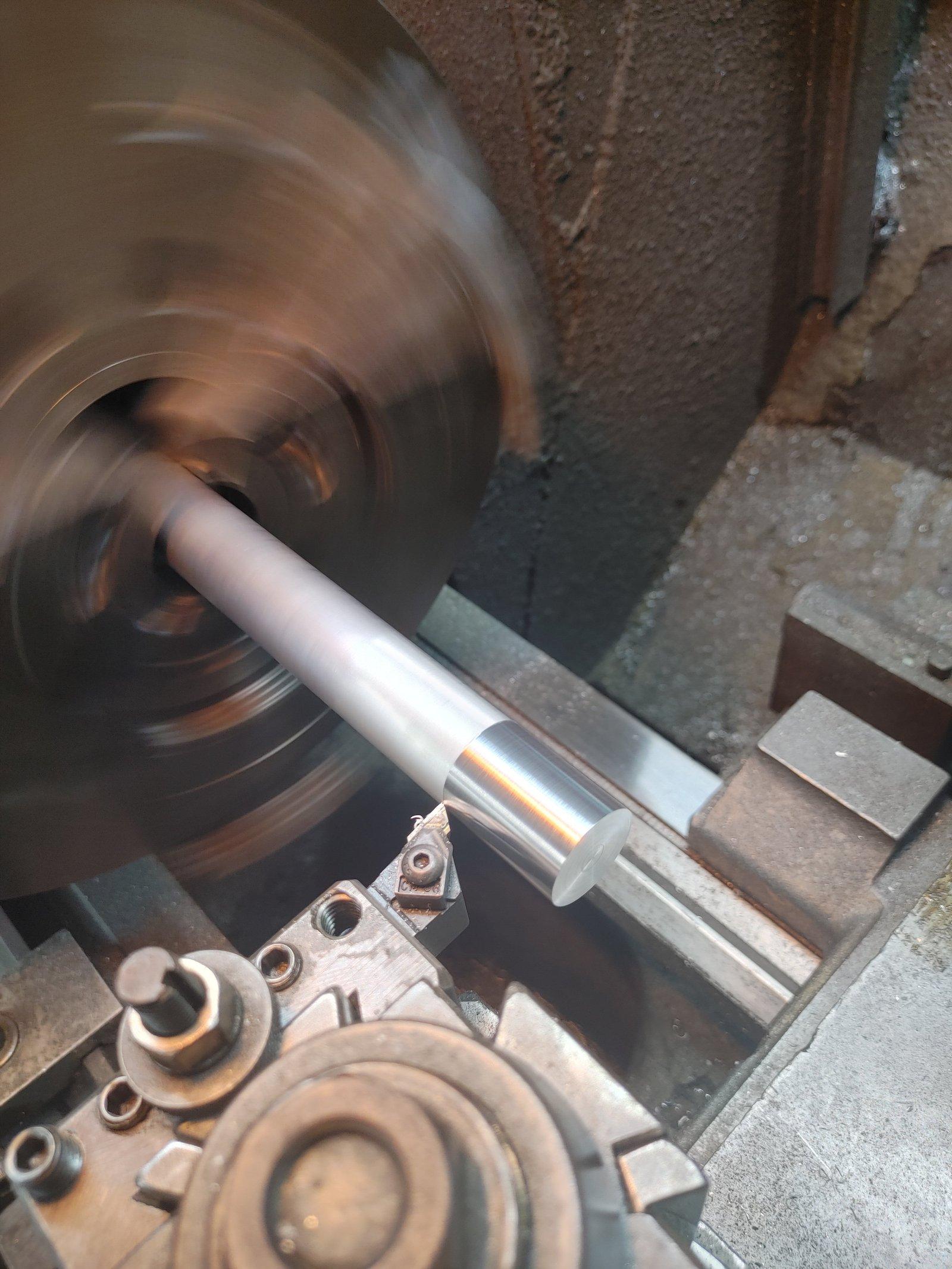
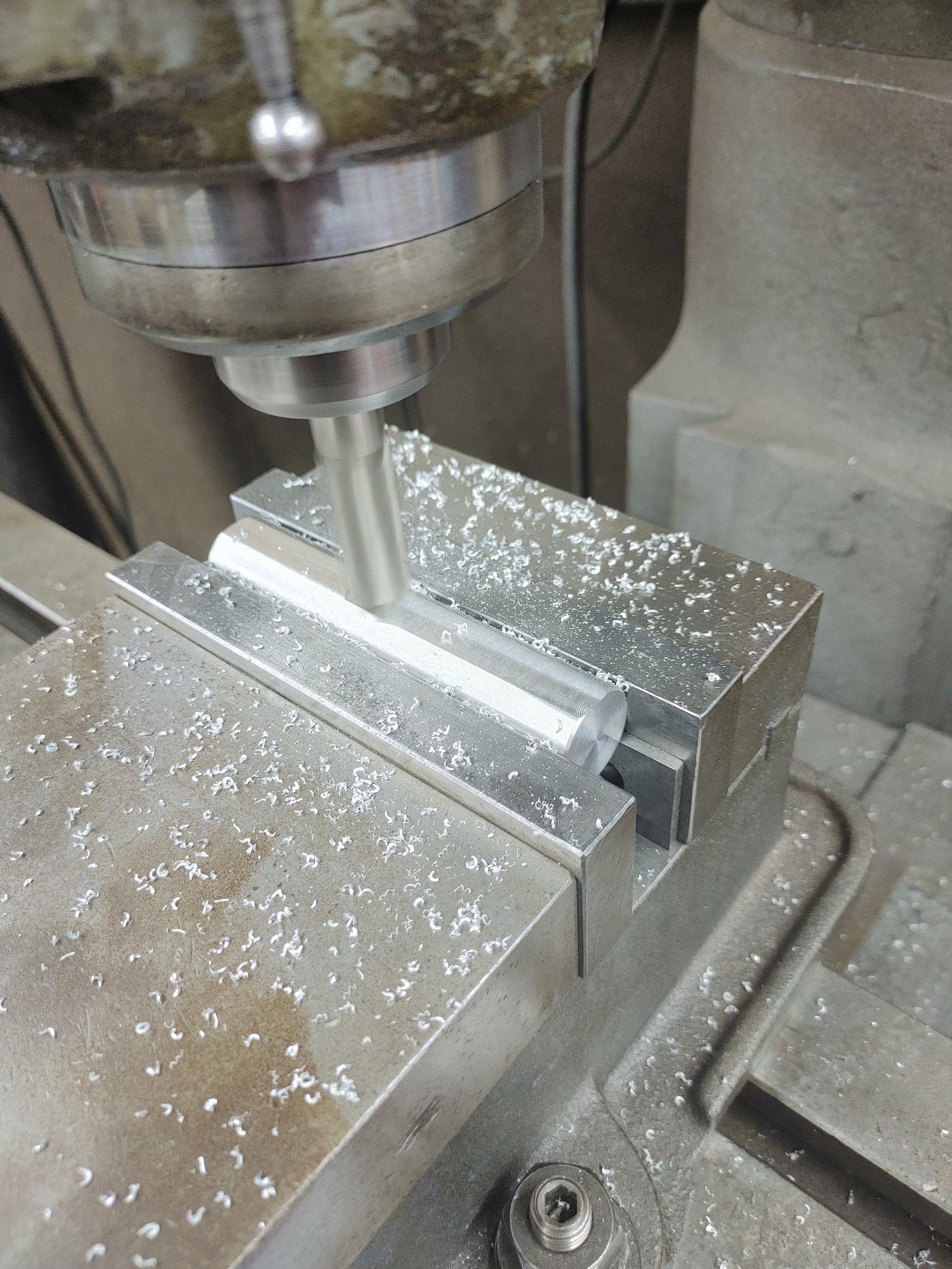
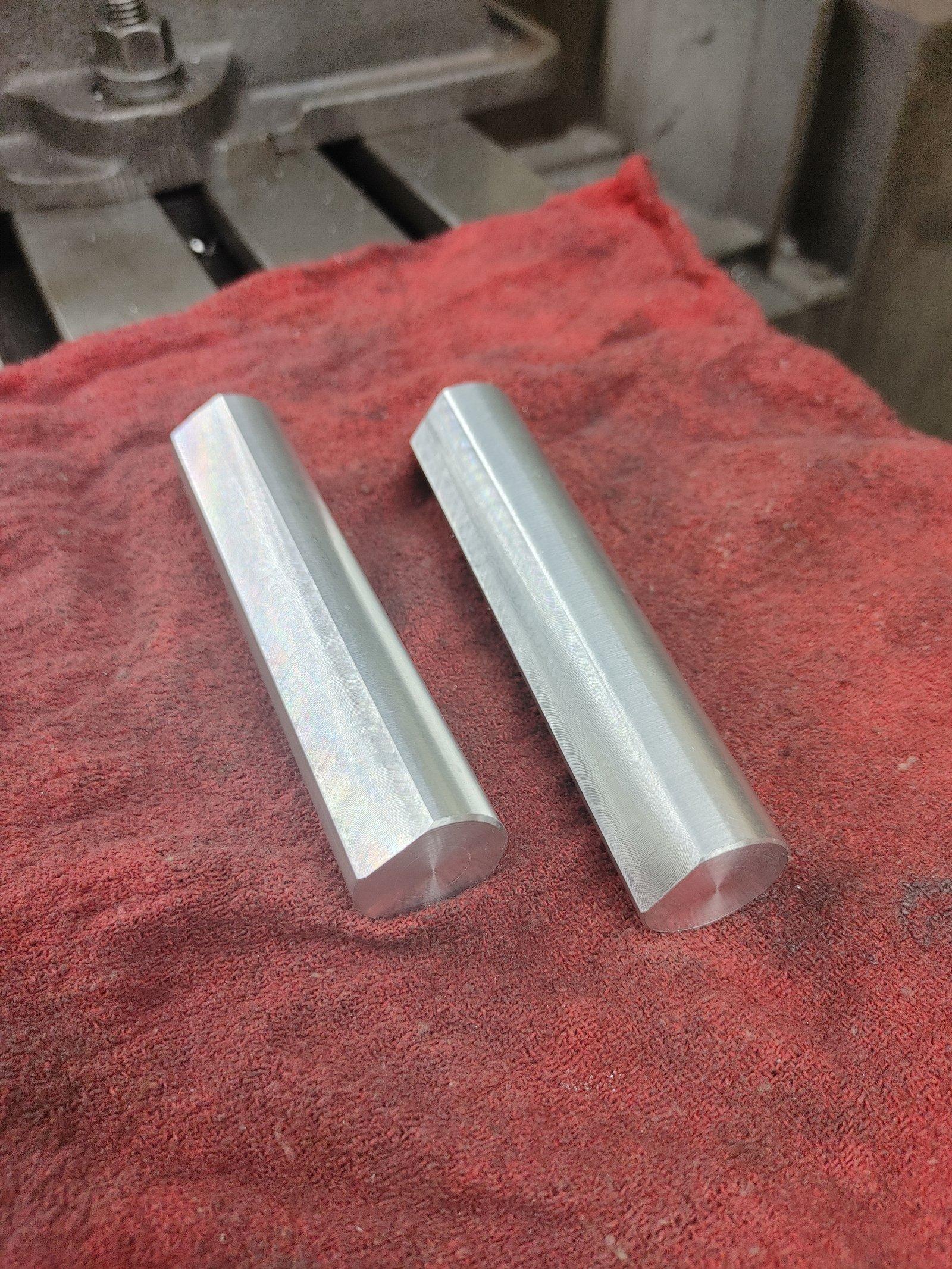
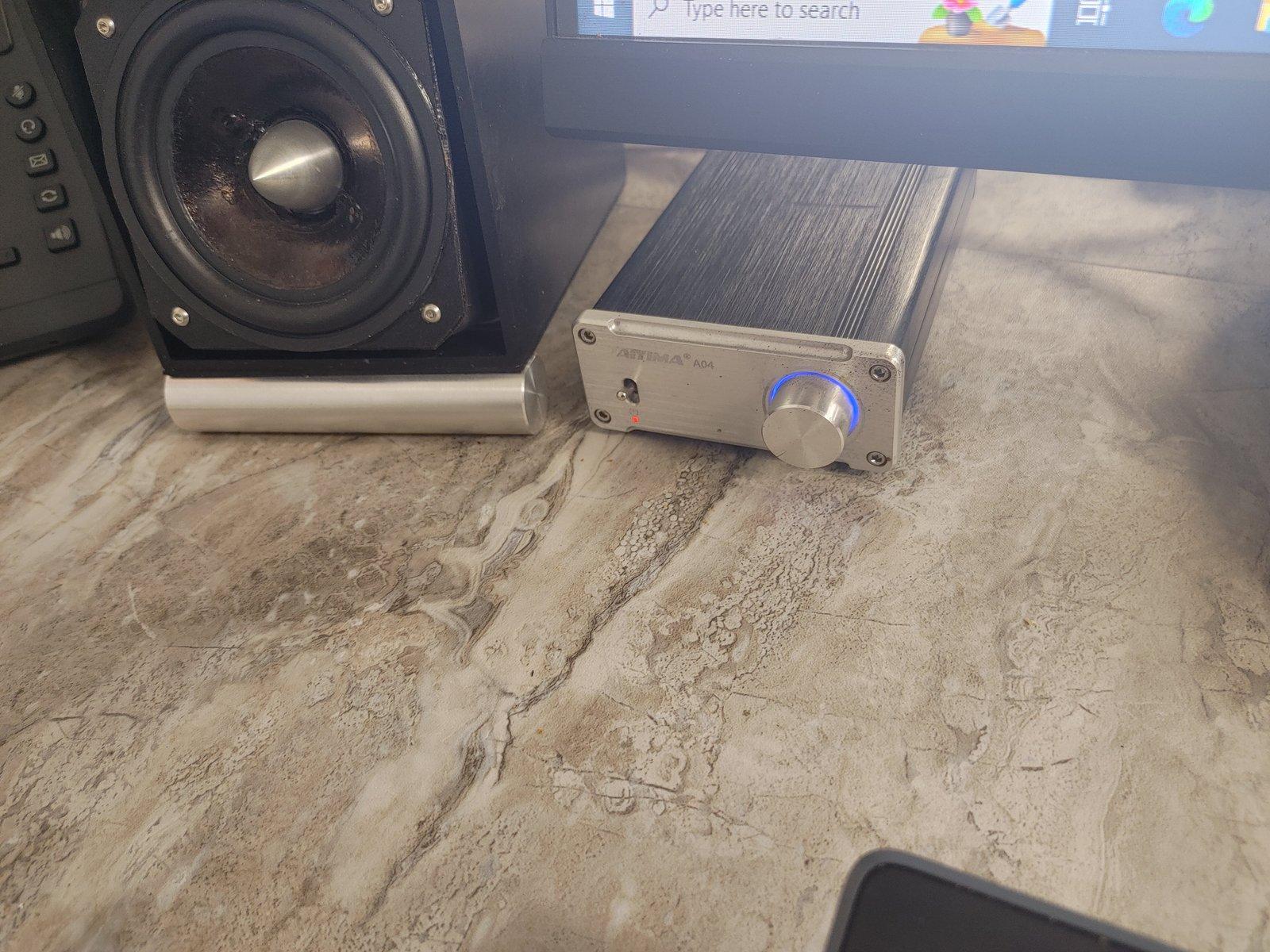
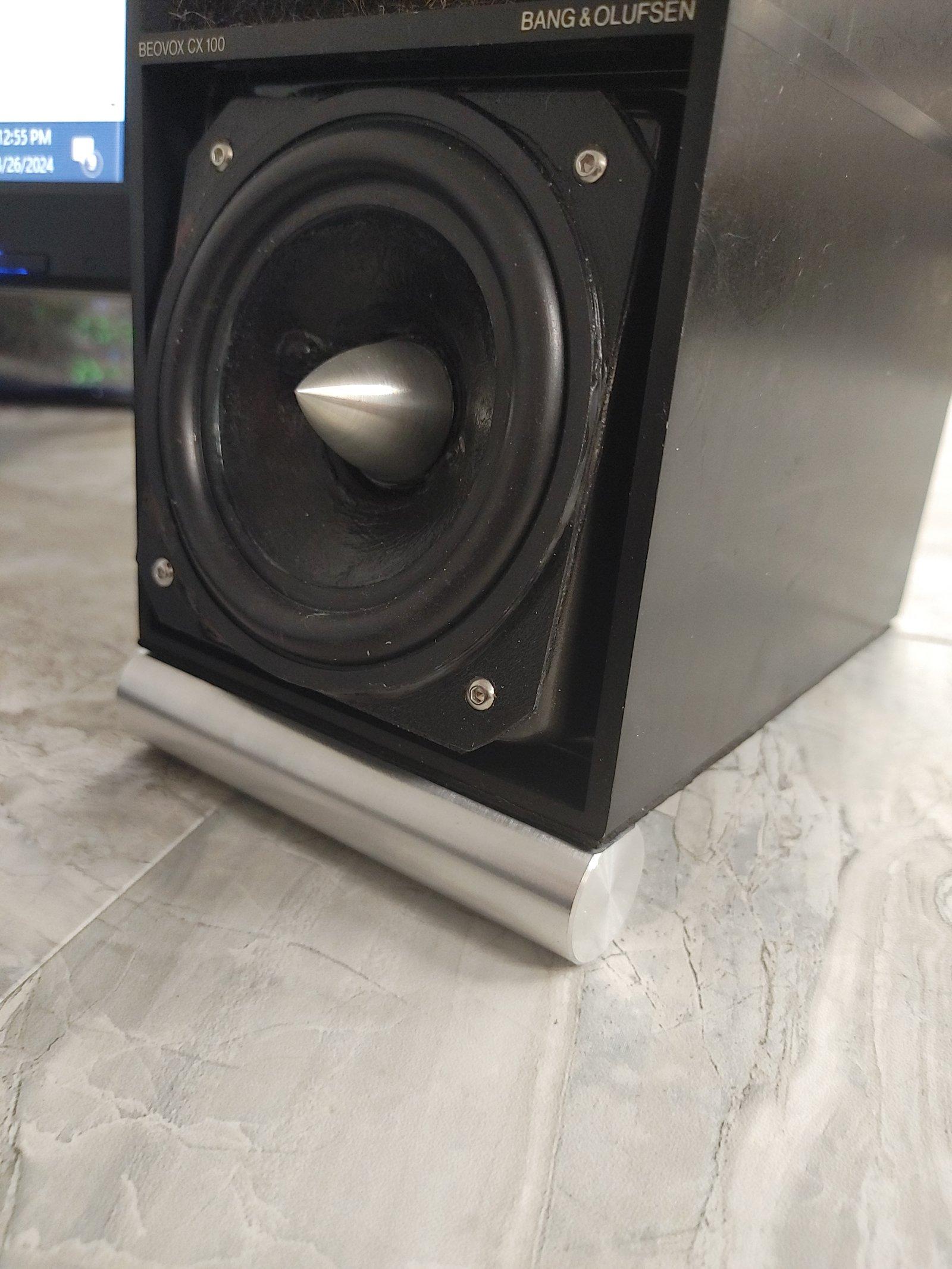
The other midrange coil was fried, so I unwound a 25.5mm ID 6.5ohm coil down to 5.2ohm to match the other midrange driver. Cut to 0.950″ total length with 0.44″ coil length to match as well. Glued in and set with shims leaving wires close to ferrule attachment points for soldering….
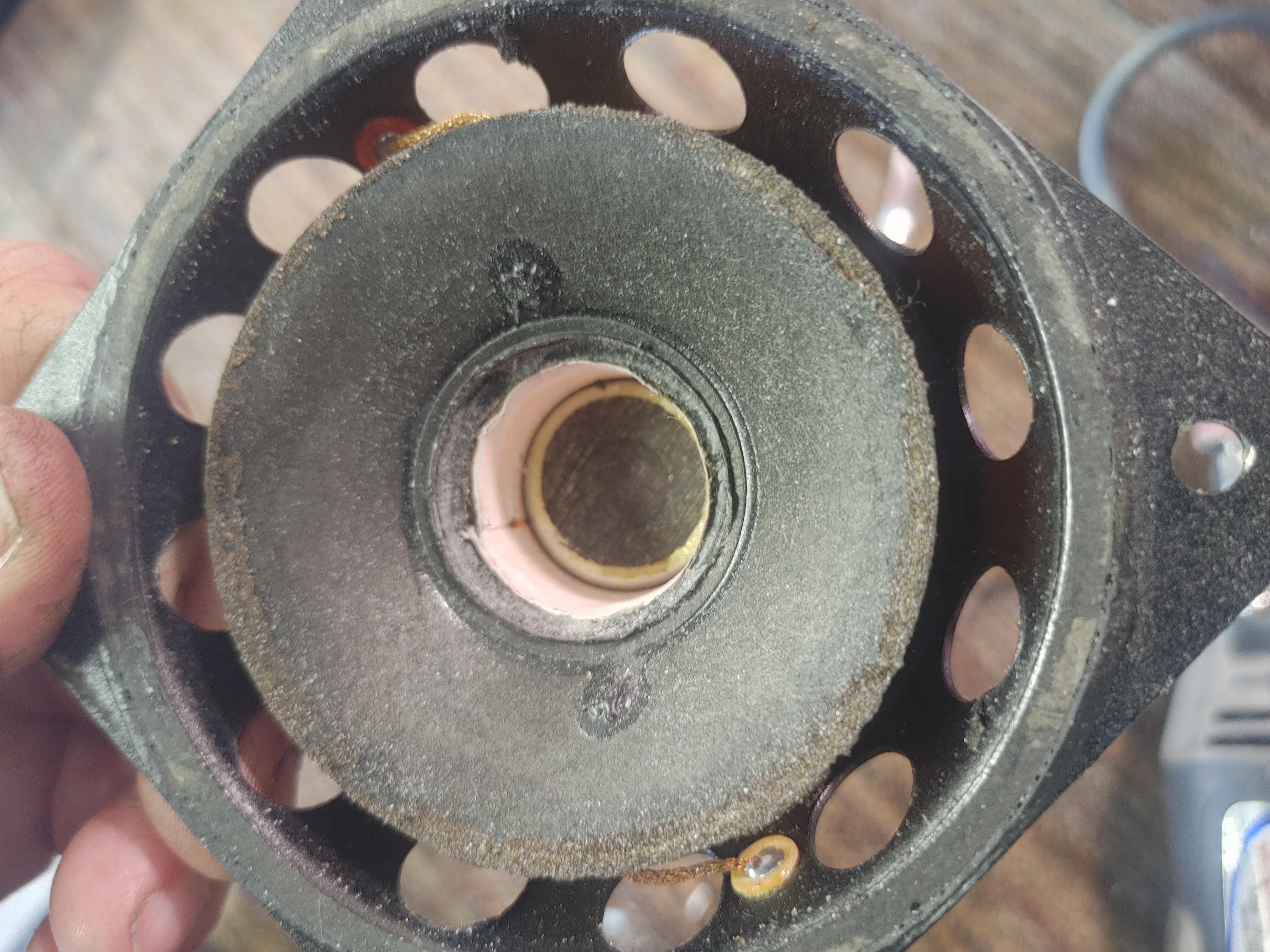
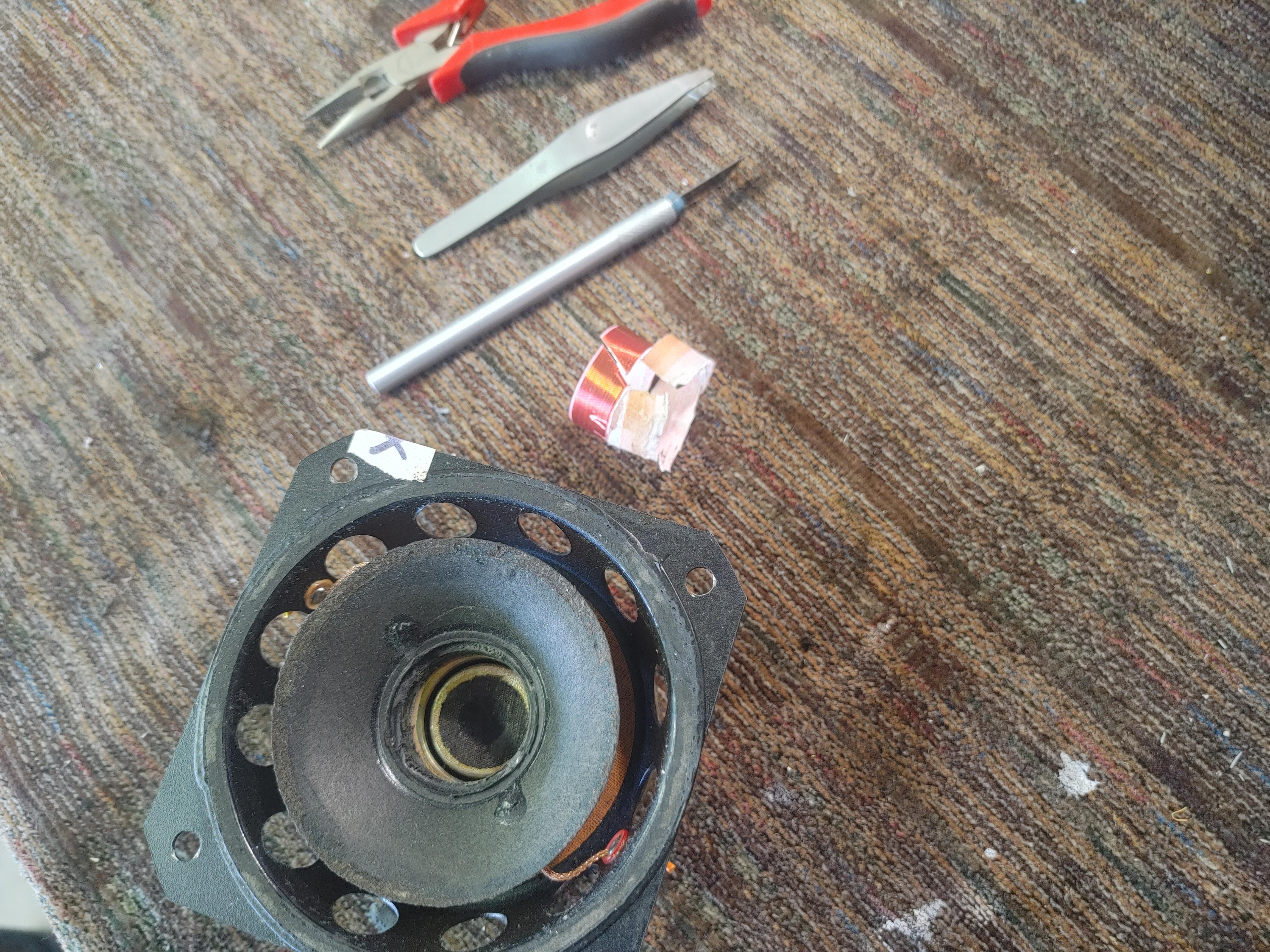
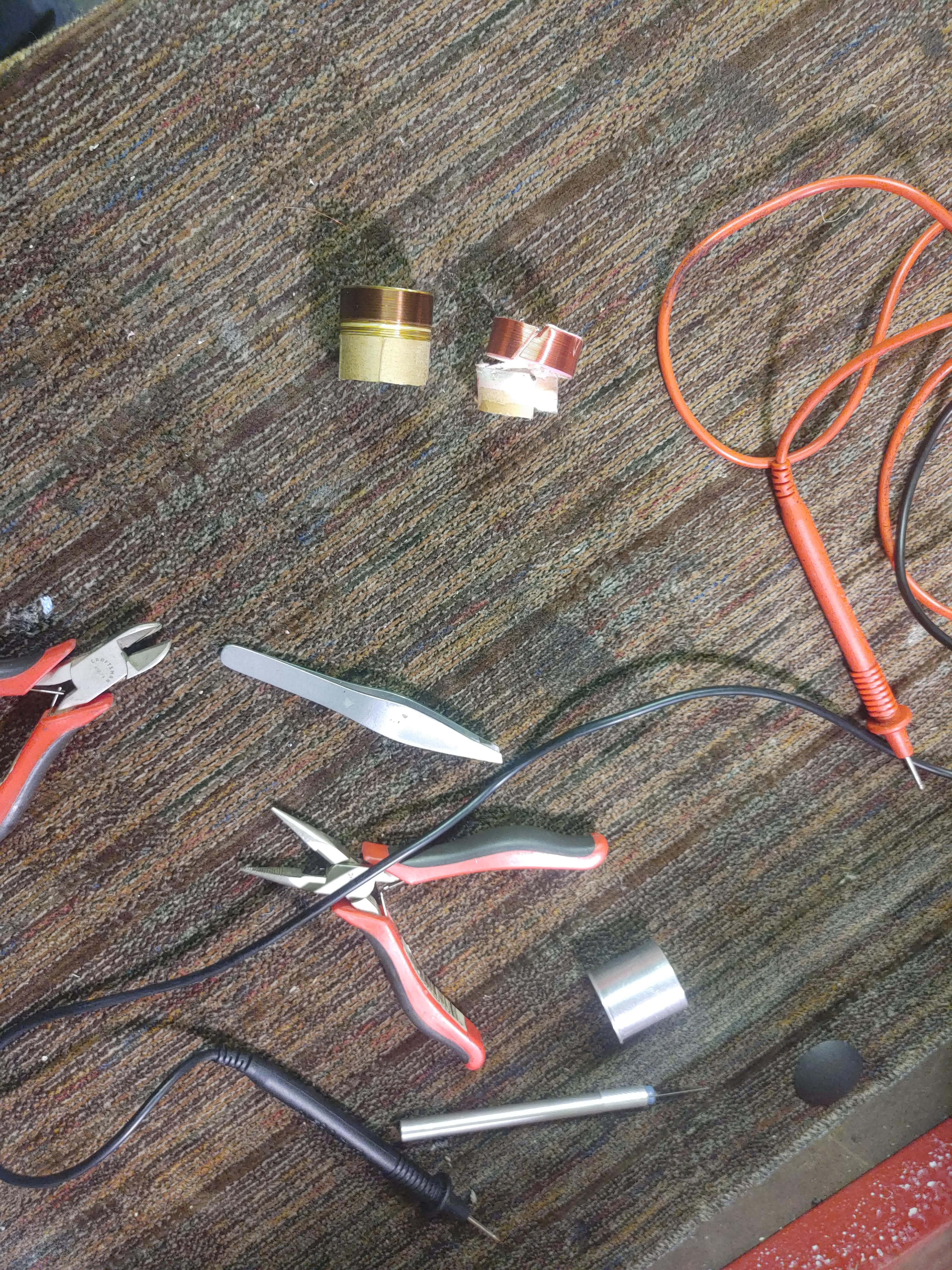
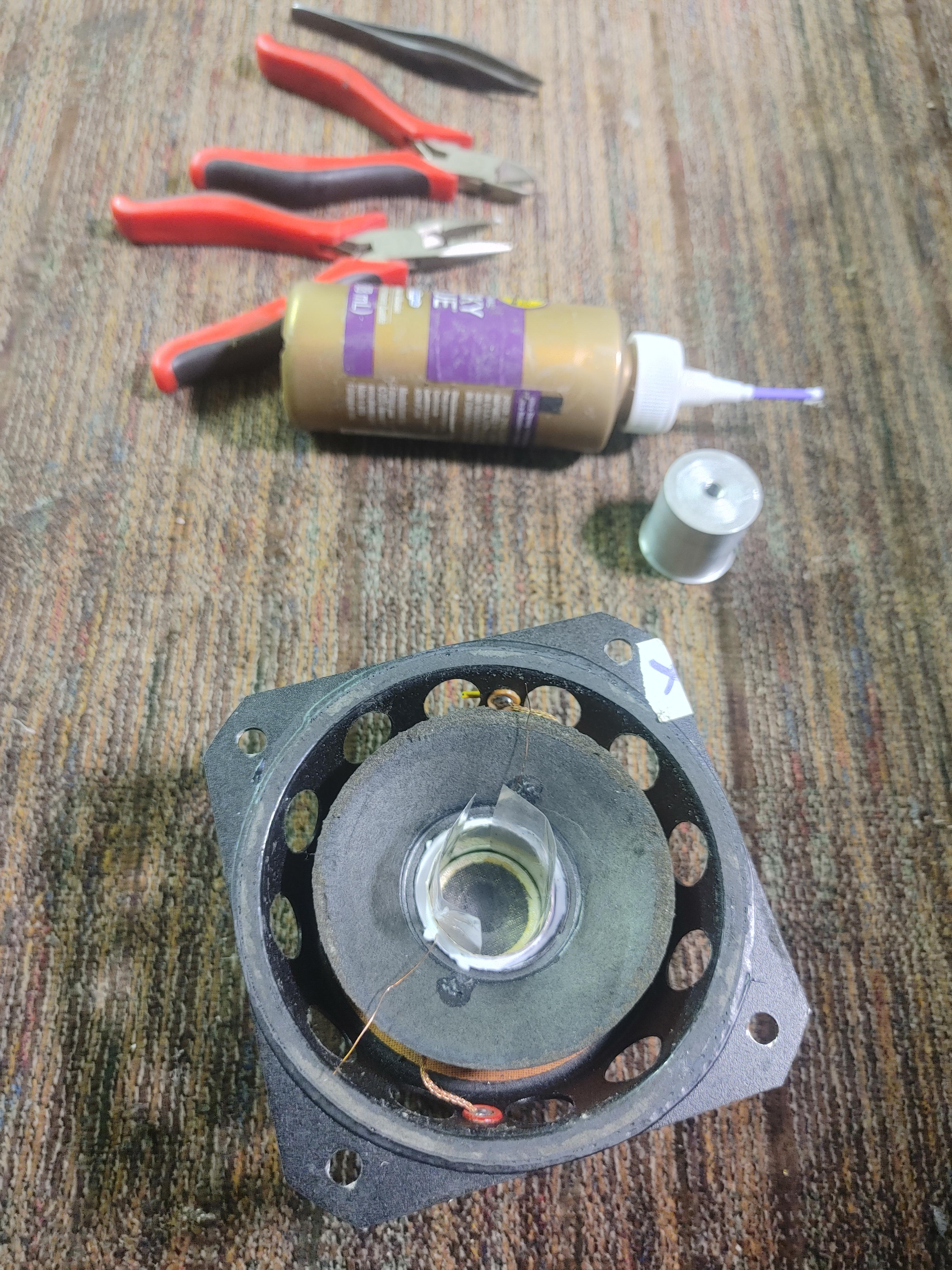
The black anodizing on this particular set was damaged by previous owner, so I’ll make them with the brushed alloy patina… Over the years I’ve used NaOH solutions, but have found heavy duty oven clean works great with 2 applications…
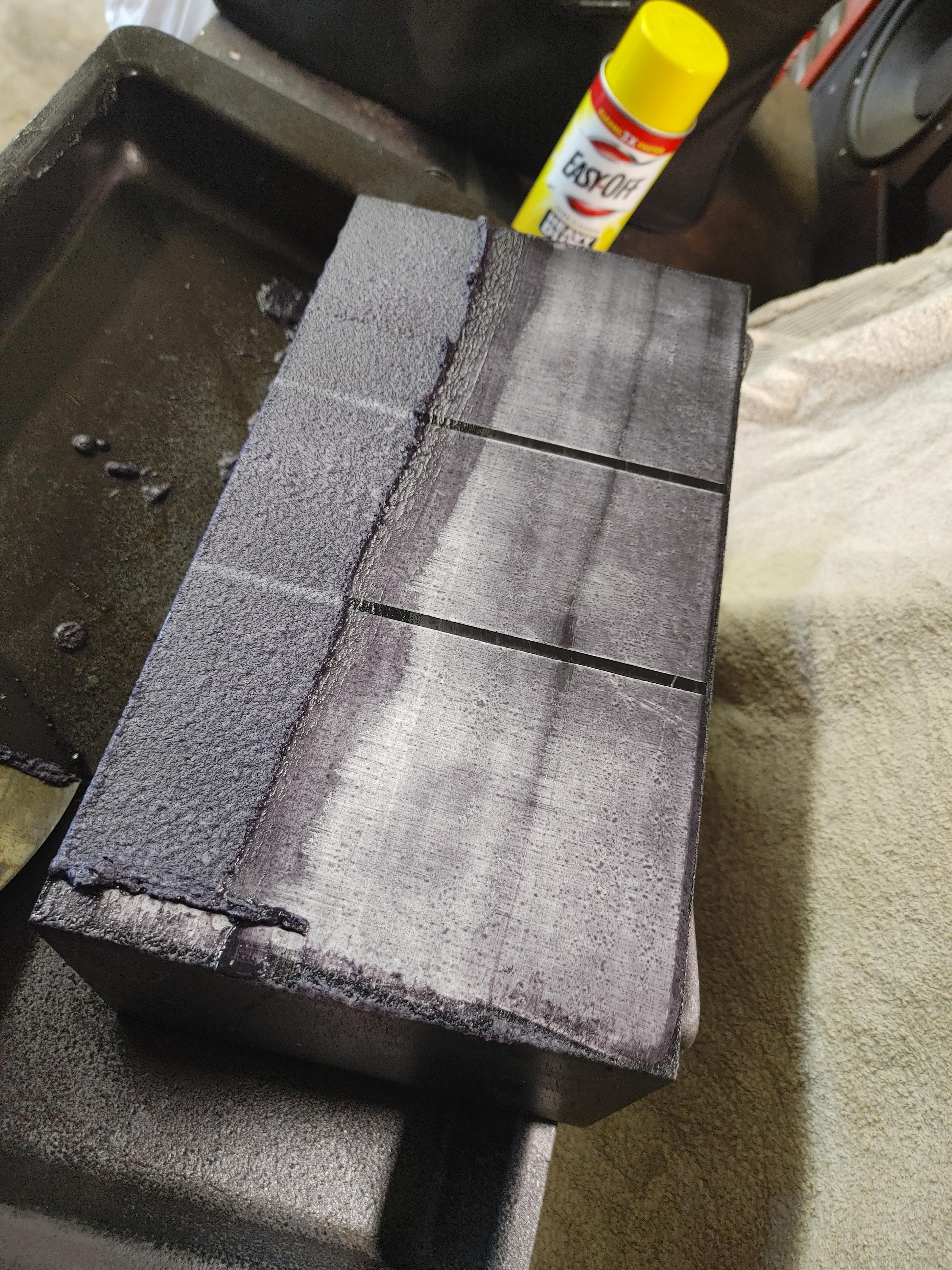
If the driver with the hole in it is NOT the midrange, then B&0 factory installed both my CX100’s backwards and got the wiring WRONG….
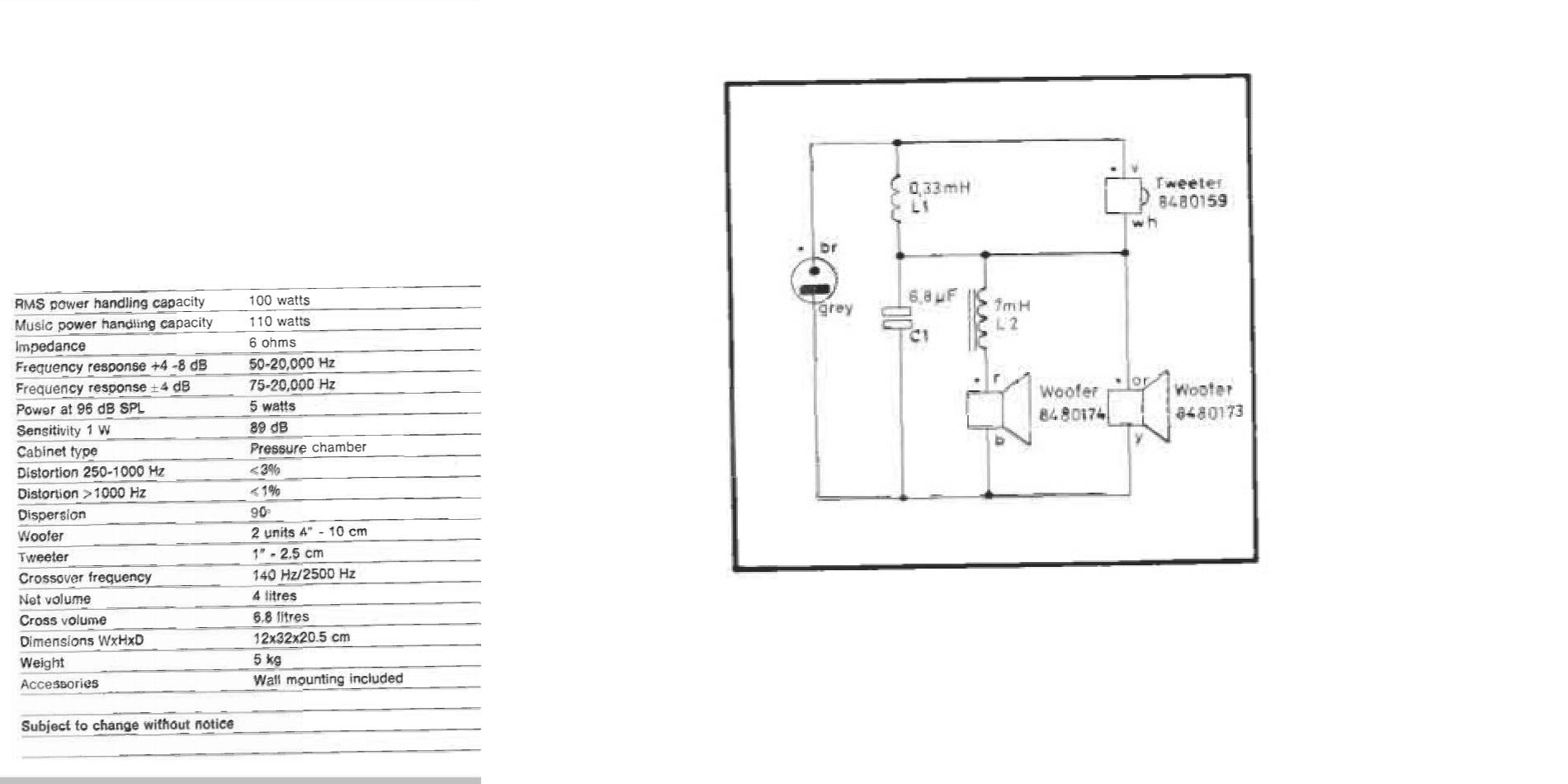
I’m only going by ears for the sound improvement. As I stated in another thread that YES INDEED, TS parameters were changed by going from the loose foam to the stiifer rubber. I knew so going in on the first build because it improved midrange performance at the cost of lower frequency SPL. They still went down to @40-50 HZ doing a HZ tone sweep, albeit with lower spl. It was a win-win situation, as I paired them with a passive sub that cuts off @ 200Hz any way. I’ll be doing the same for this set. Just incredible midrange reproduction doing these modifications.
That said, being an experimenter with a biochem degree and many years of industry experience, I loosened these next set of butyl surrounds with a high dilution of methyl salicylate in boiling water for 10min. This was to improve their deformation for cone edge gluing, but indeed also relaxed the butyl rubber nicely…
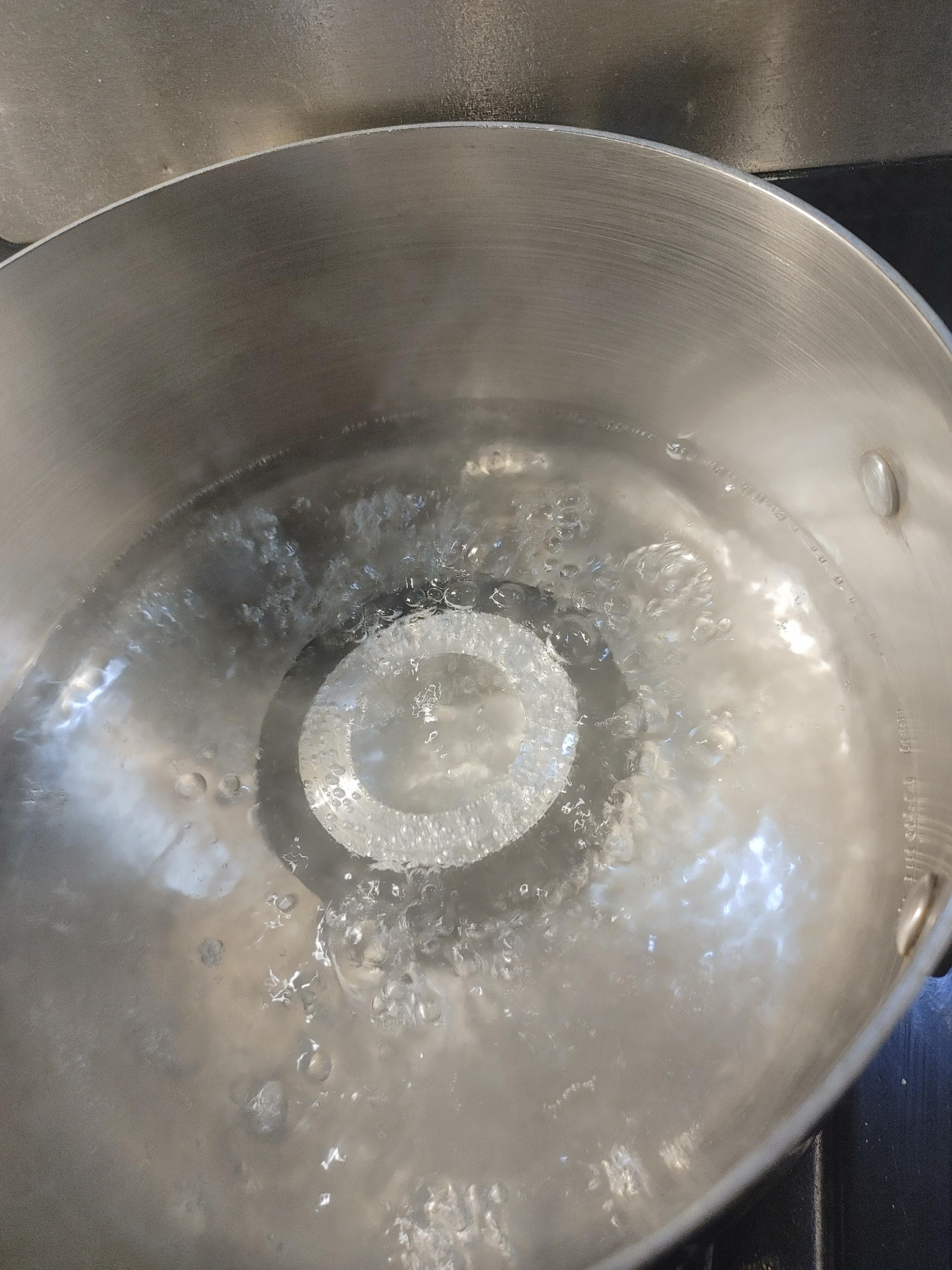
Again, I removed more mass from the moving dust cap than what was added from the thin layer of dried latex (for cone damping). The speed increase of the lighter moving cone translates to better transients. Here’s what B&O did to ameliorate the resonance of the air chamber created under the hard dust cap of their midrange, which is just the same woofer, just modified pole-piece. A phase-plug would have also solved that problem, as well as fix any center cone signal cancellations…
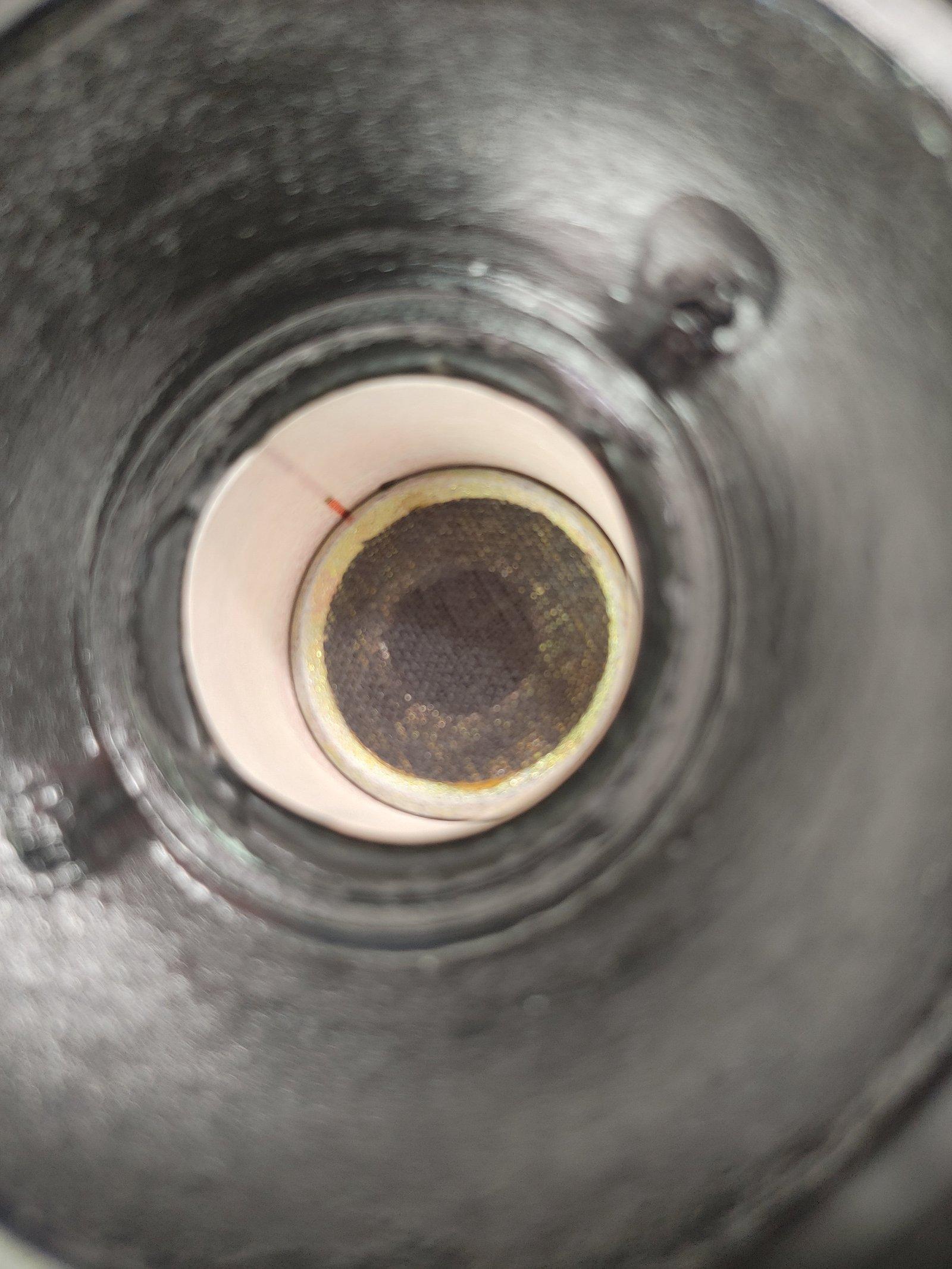
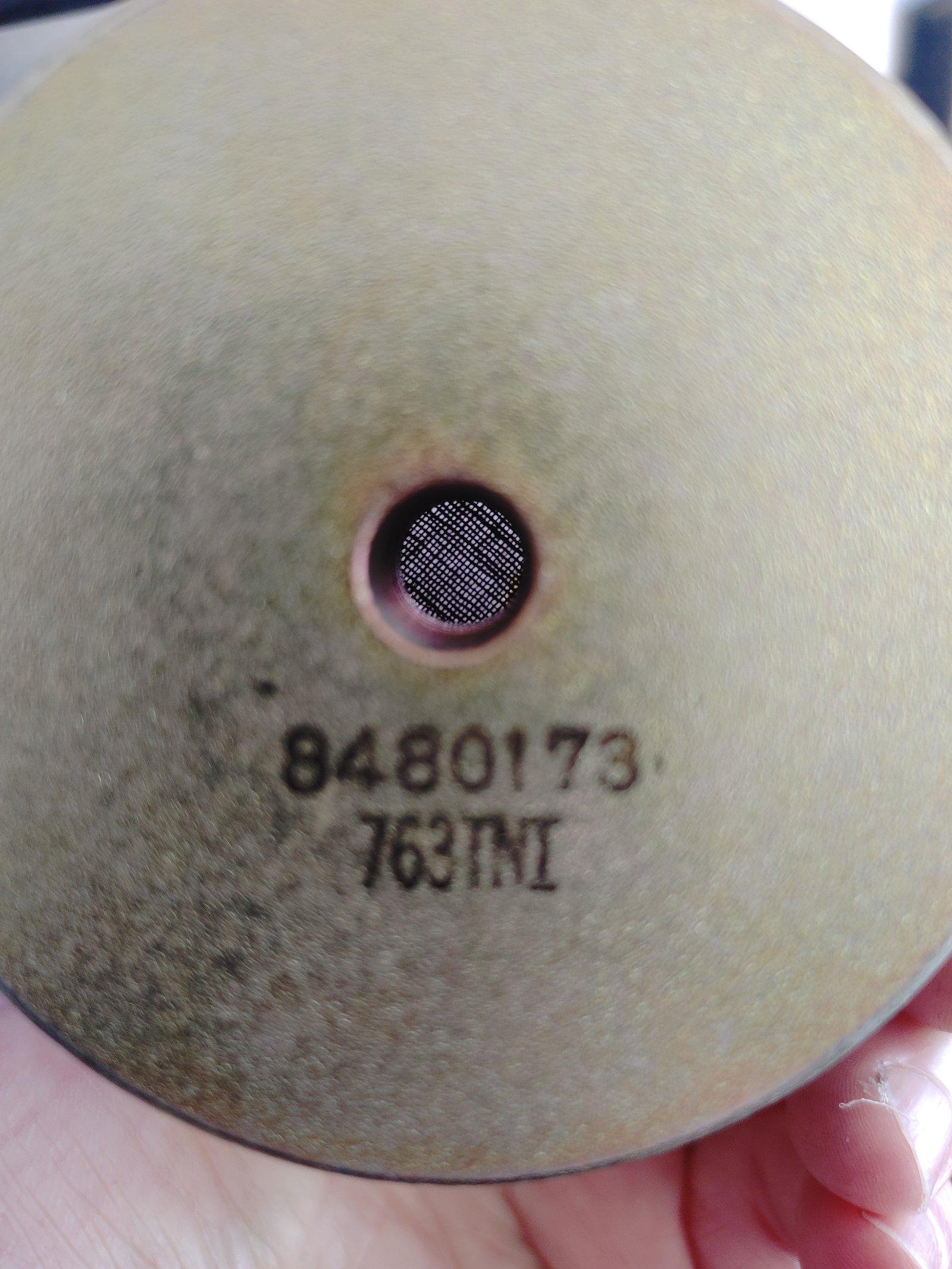
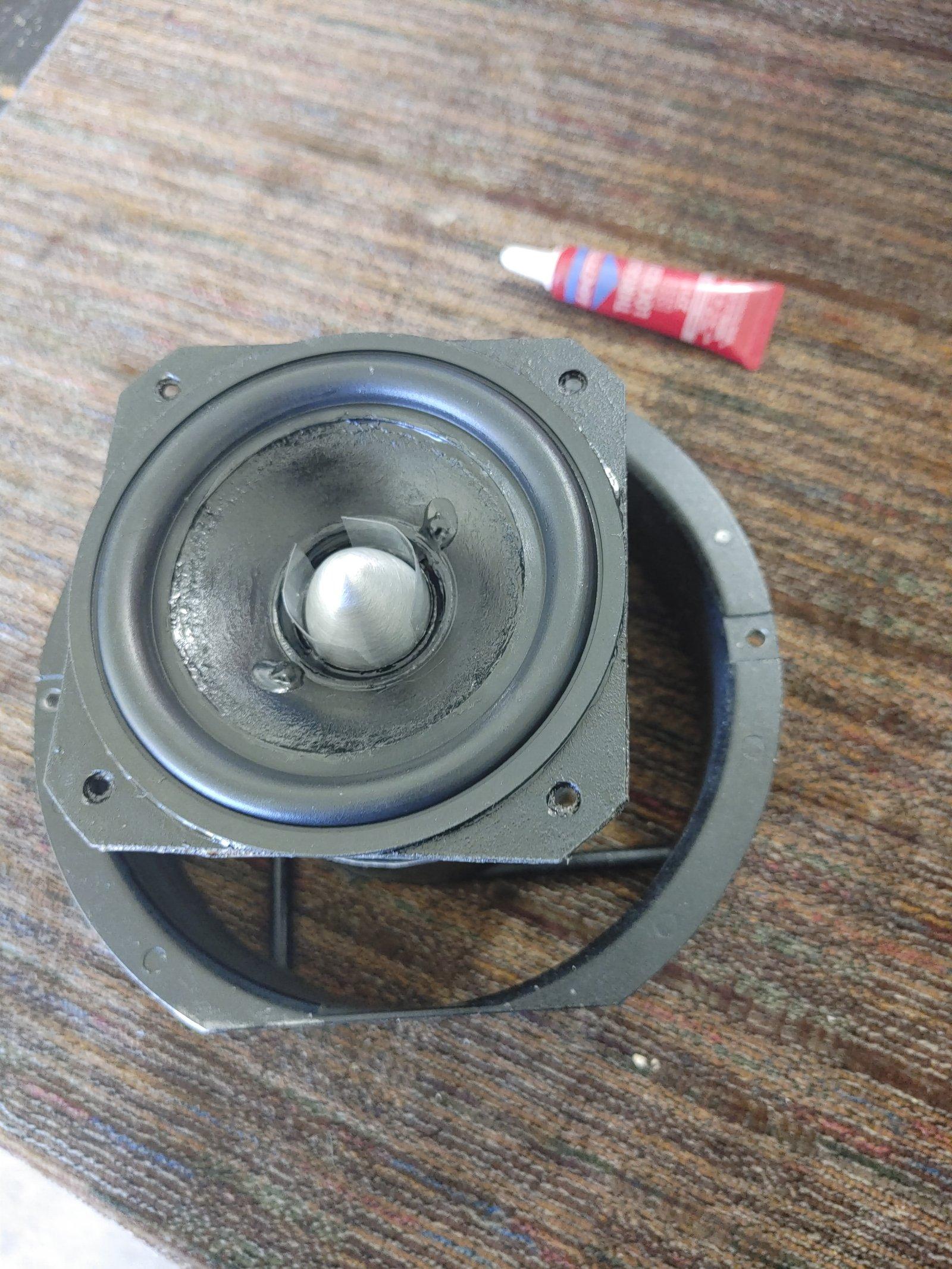
After new surround is glued and dried to basket frame flange, I use just a drop off black latex paint to dampen the cones and dust cap. It dries to a miniscule added weight and rejuvenates the dried paper cones as well. I go ahead and black out the frame edges too while I’m at it….
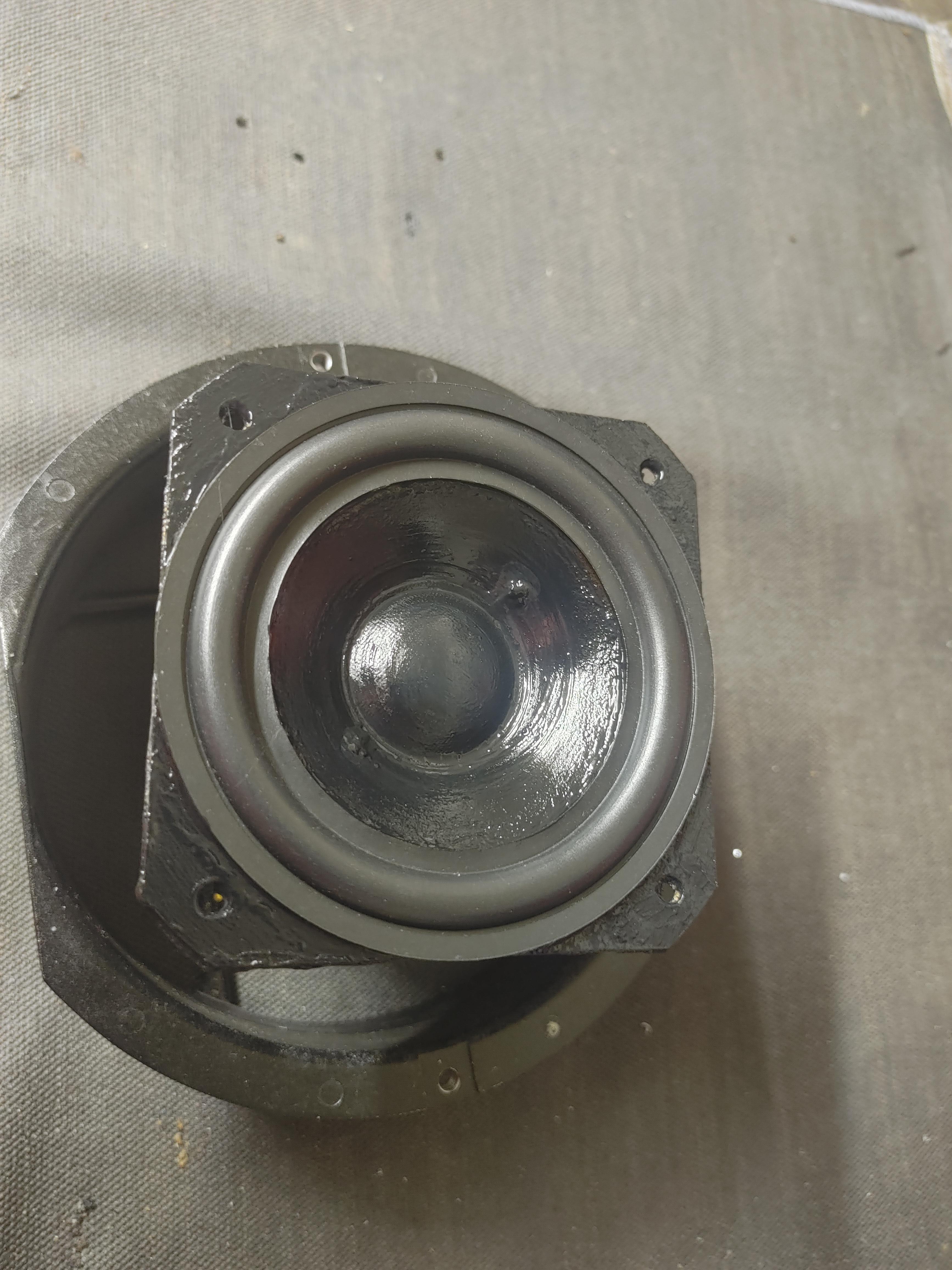
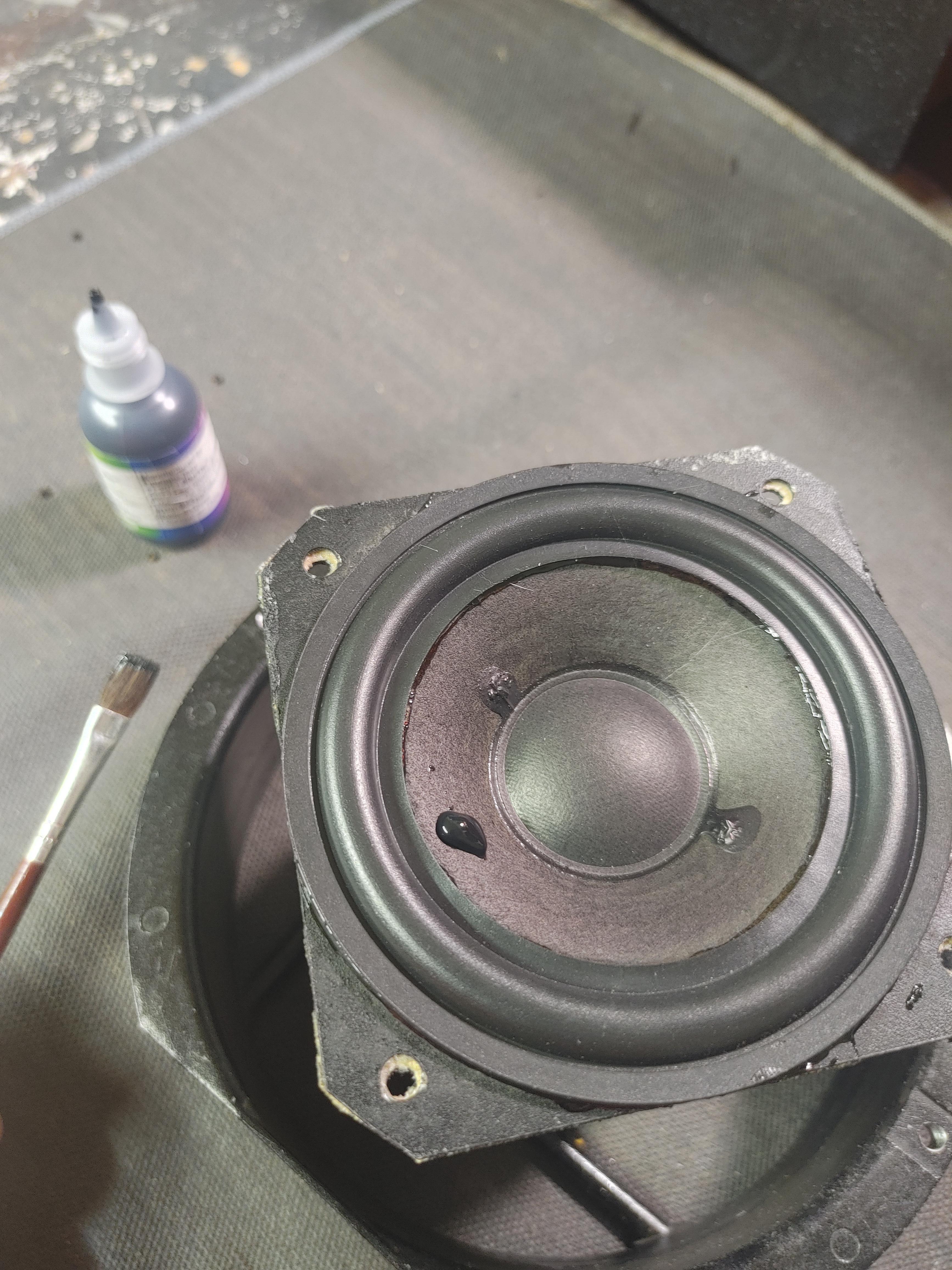
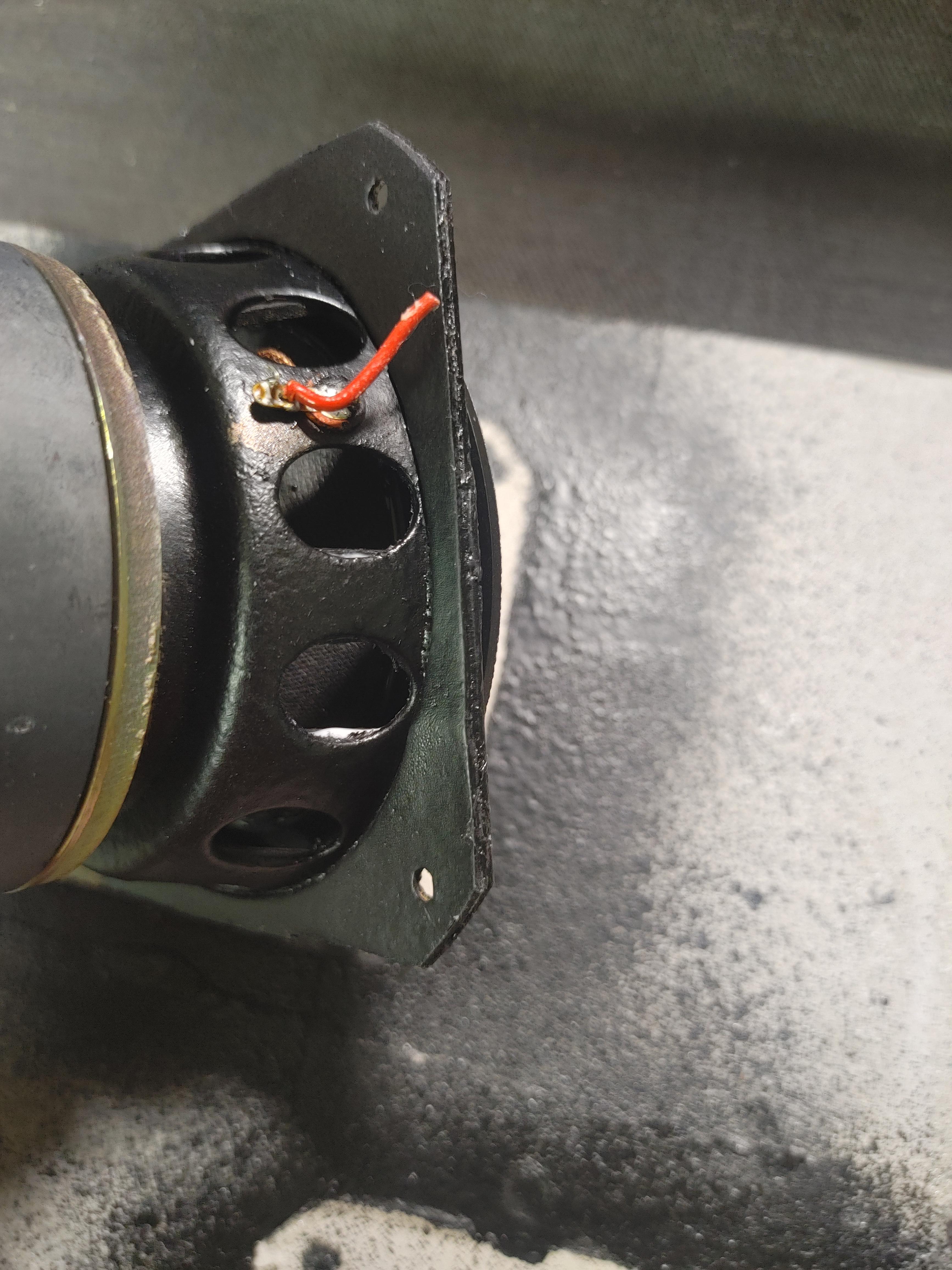
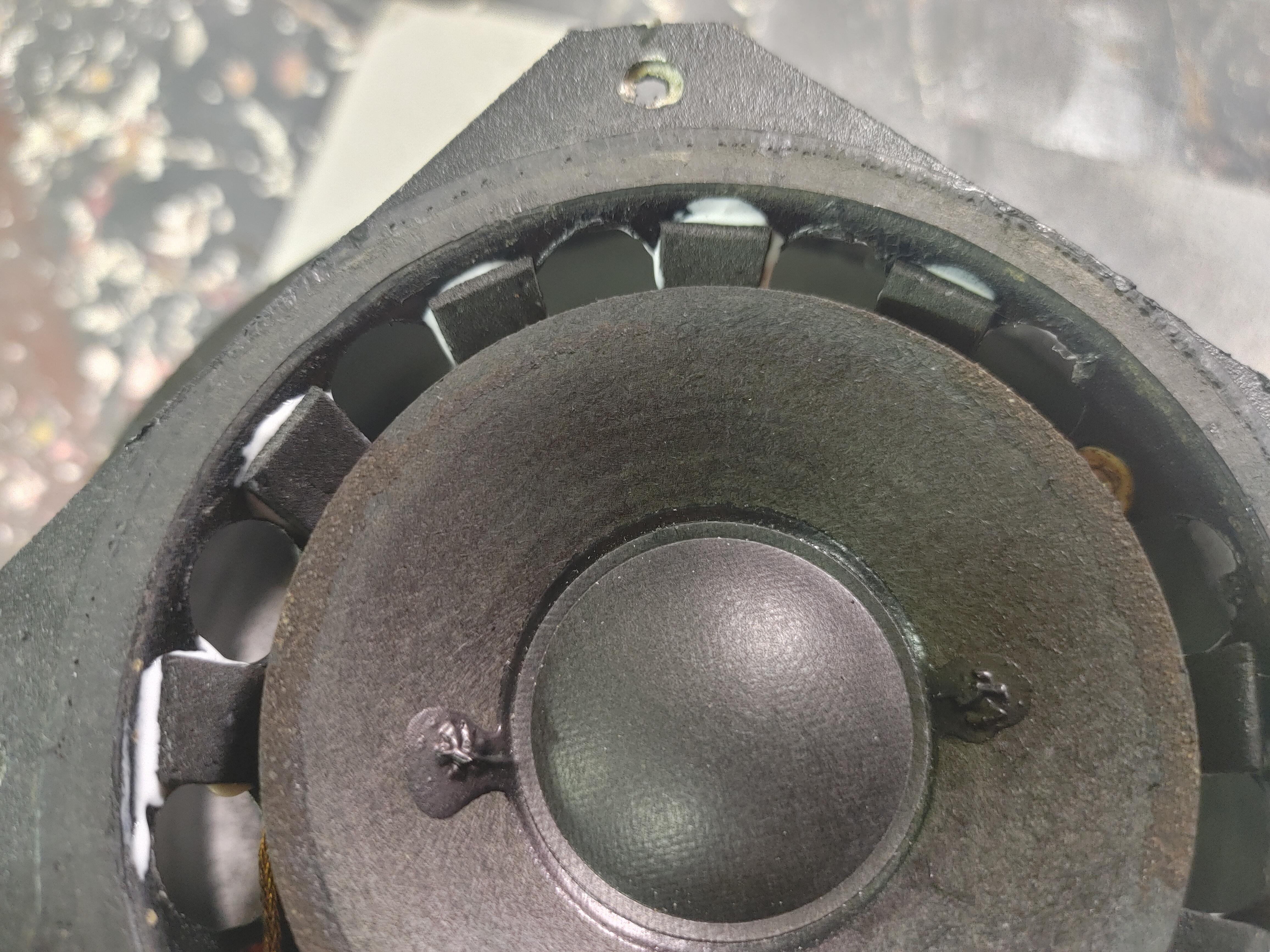
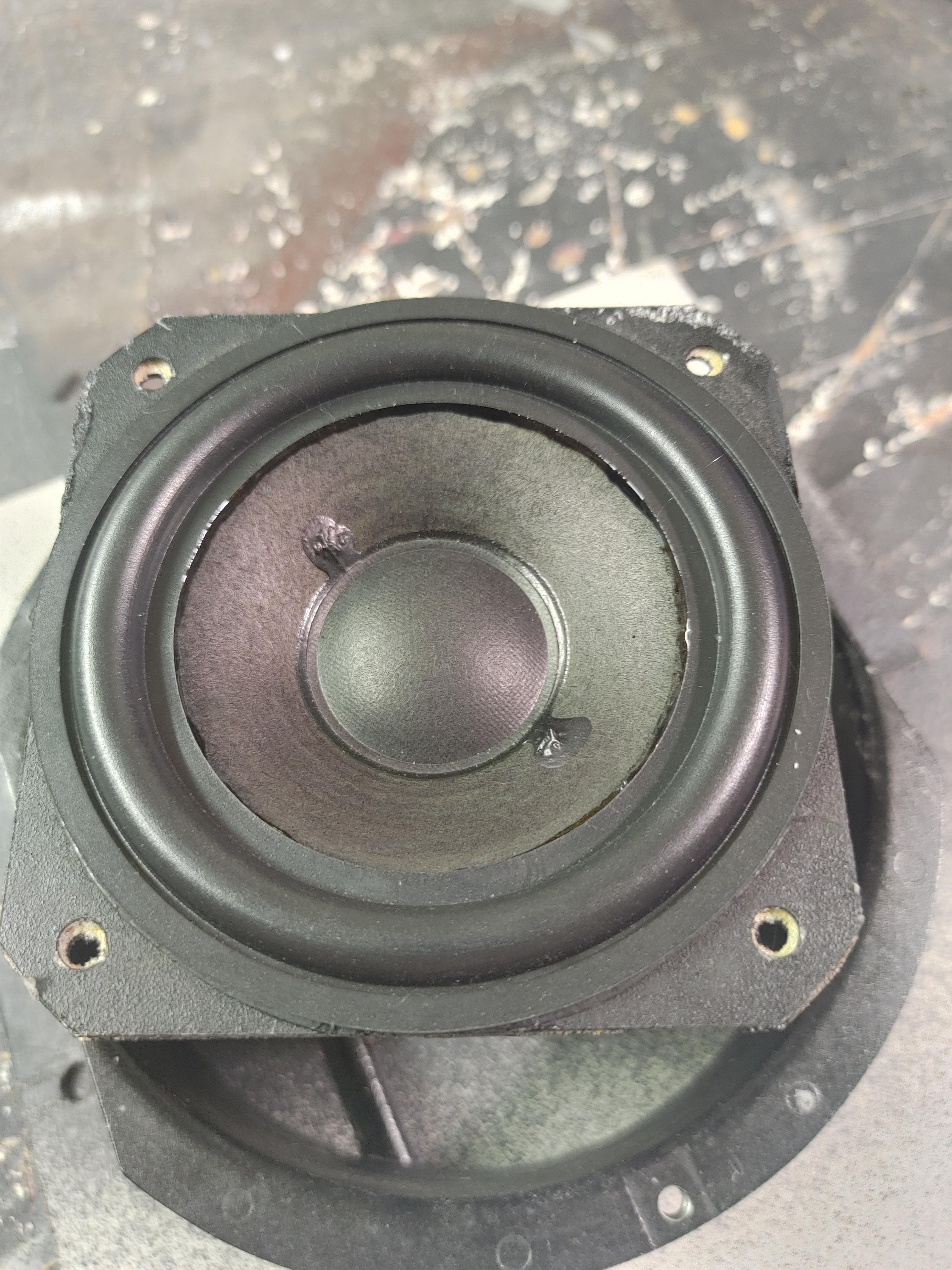
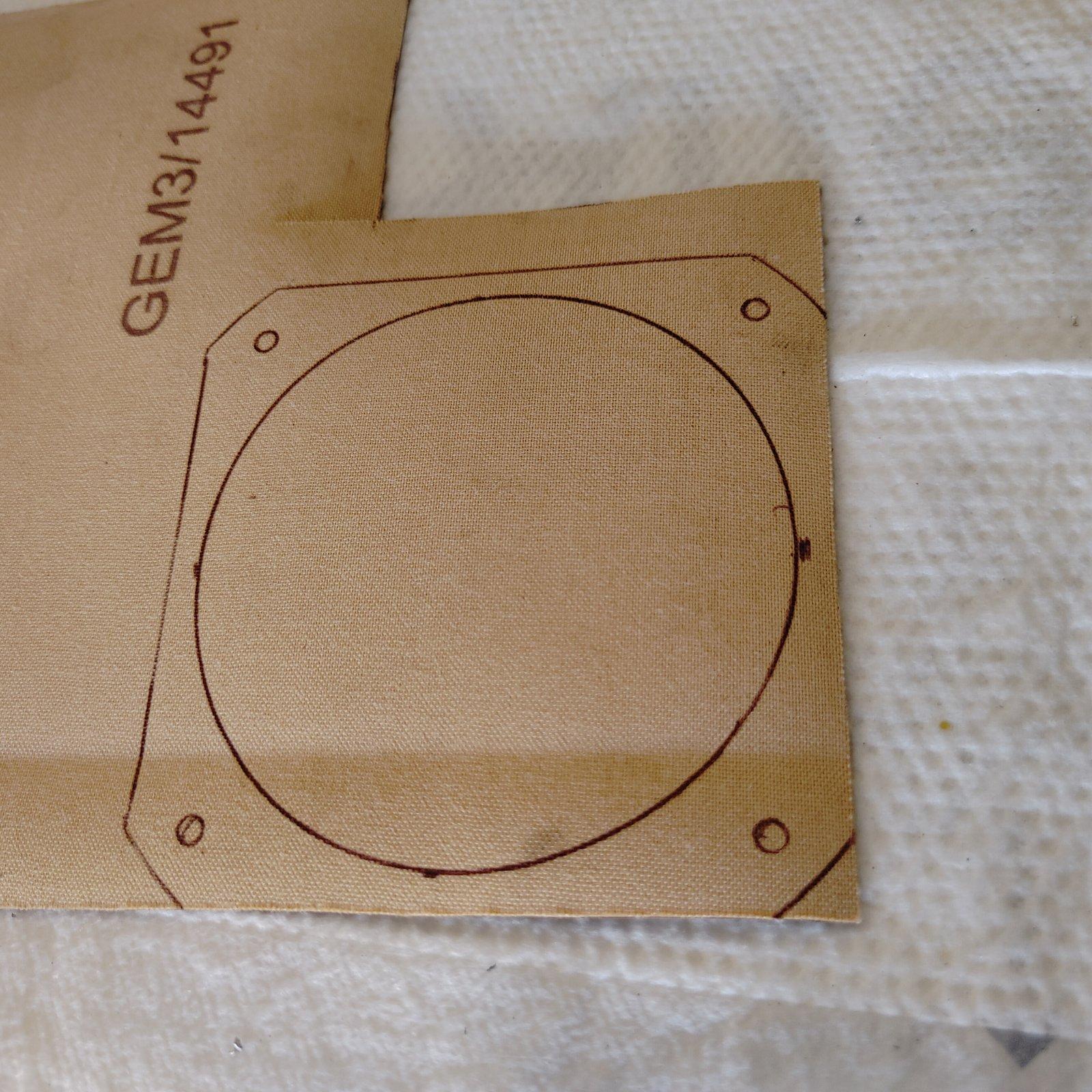 I foamed (1/8″ thick open-cell) the inner frames and applied 2 layers of thick polyurethane adhesive to the outer frame baskets first thing after removing old rotten foam from cones with mineral spirits. I protected the rear cones with a curled strip of bubble-wrap, and terminals with electric wire nuts. I also made fiber-cloth reinforced rubber gaskets and glued directly to frames, rubber side facing towards cabinet openings for positive driver sealing. After polyurethane, foam glue and new frame gaskets dried, I glued the inner cone perimeter and attached new butyl surrounds there first.
I foamed (1/8″ thick open-cell) the inner frames and applied 2 layers of thick polyurethane adhesive to the outer frame baskets first thing after removing old rotten foam from cones with mineral spirits. I protected the rear cones with a curled strip of bubble-wrap, and terminals with electric wire nuts. I also made fiber-cloth reinforced rubber gaskets and glued directly to frames, rubber side facing towards cabinet openings for positive driver sealing. After polyurethane, foam glue and new frame gaskets dried, I glued the inner cone perimeter and attached new butyl surrounds there first.I’ve owned quite a few classic Beovox and I have to say these are the best imaging and midrange-detailed for their size. I have another set that I will do the exact same modifications to. I have built custom baffles out of solid alloy and it is the go-to medium in my opinion.
Again, kudos to B&O for the quality of alloy they used in making these back in the day. They simply need a layer of dampening applied internally to make them almost dead-quiet.
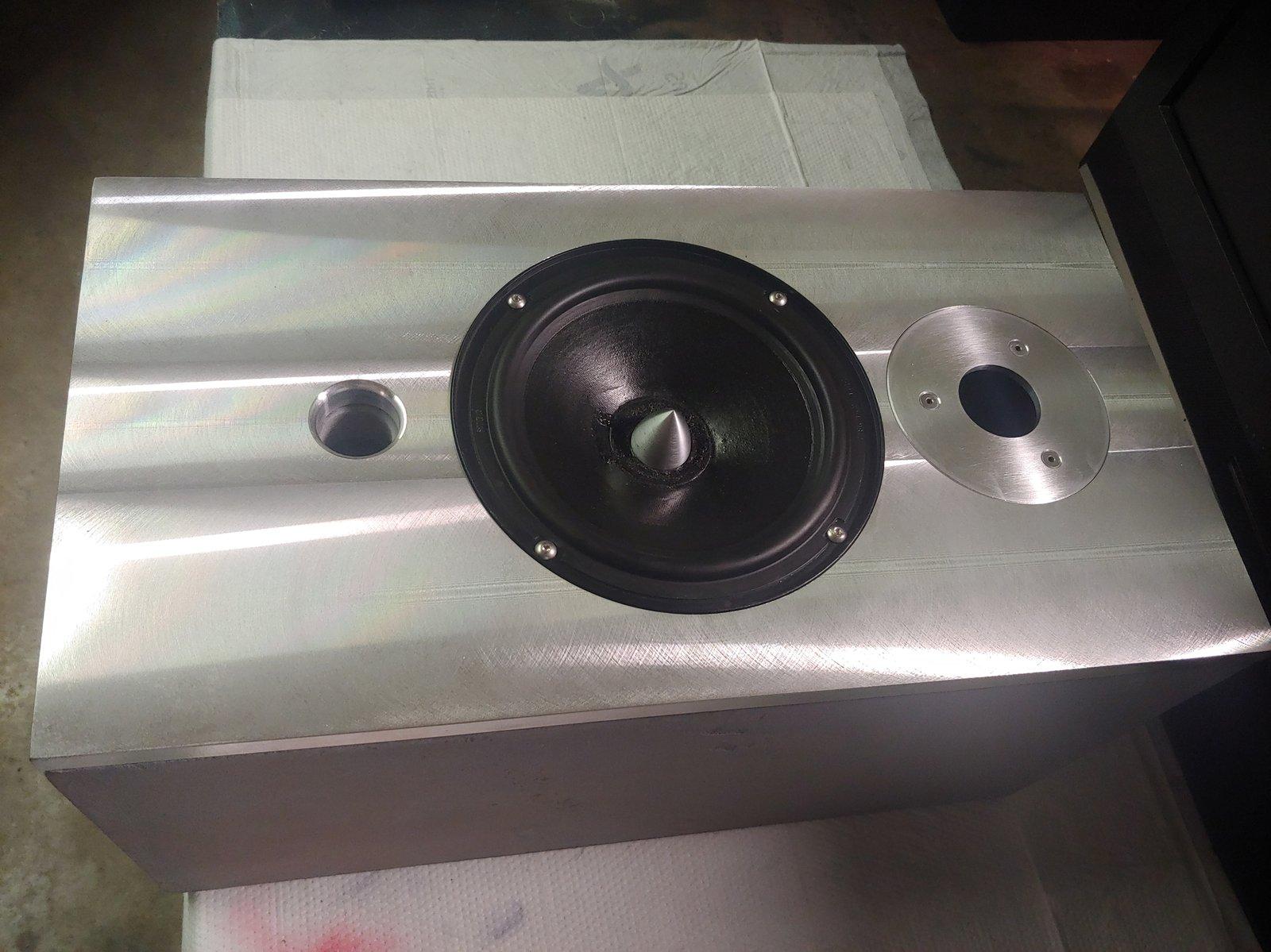
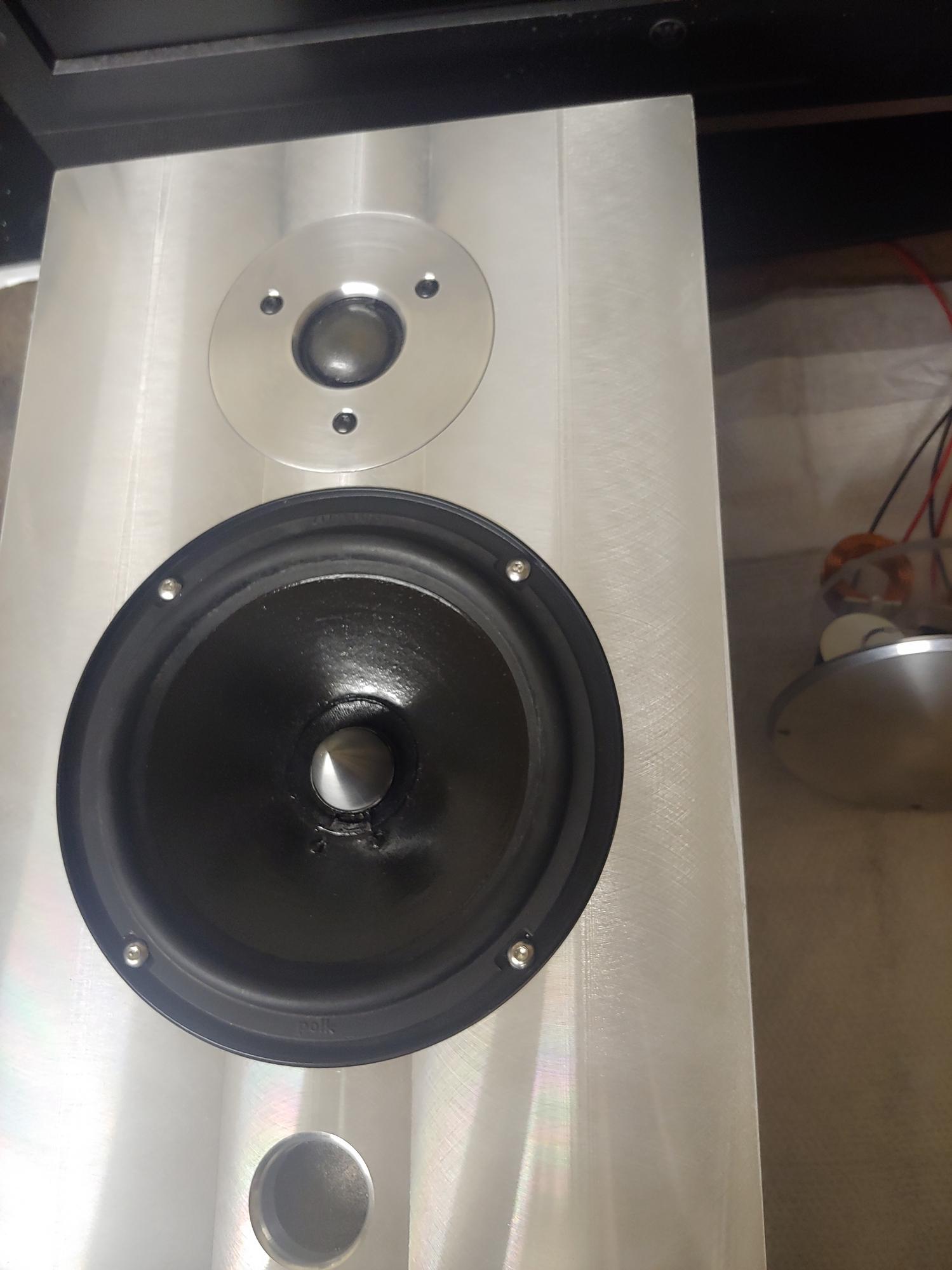
Thank you. I look forward to building another one.
Hello xschop, with frets I meant the cloth covered plastic speaker fronts. Nothing much to mod there I guess :-). Best of luck, regards, Johan
Ah, ok. In my neck of the woods they’re called grills. Makes sense.
I really like the look of the brushed-alloy finish of the C75’s.
A good question for the engineers is what specific alloy was used for the panels and what technique was employed to weld them together?
I have worked with many different alloys and these alloy cabinets are top quality. Kudos to B&O.
“I just touched up the metal of the drivers with a black marker as they will be playing with (freshly washed) frets.”
I have to ask what is a “fret”? I am currently looking for a set of C75’s to rebuild as well. I see they don’t have the mid-drivers angled like the CX100’s.
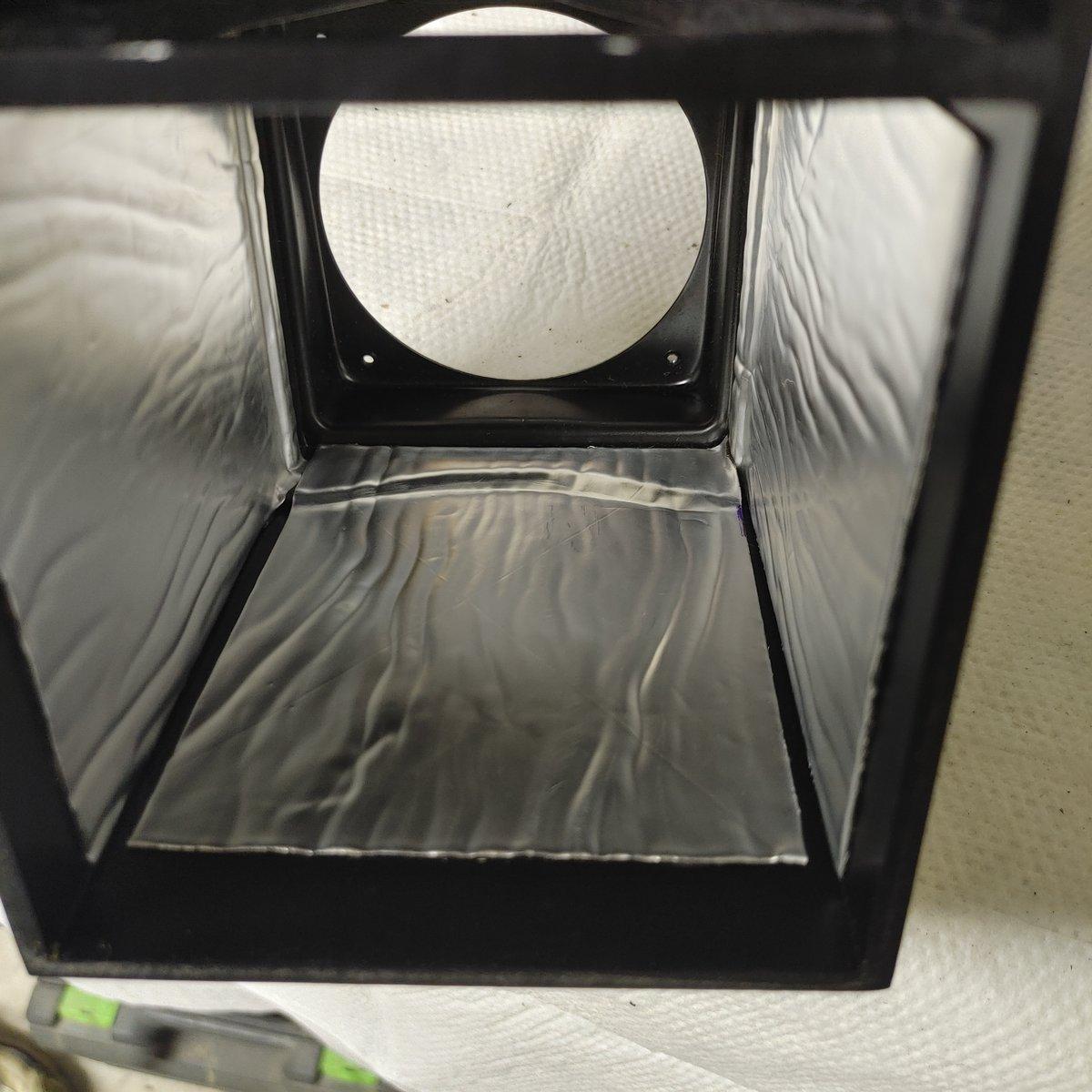
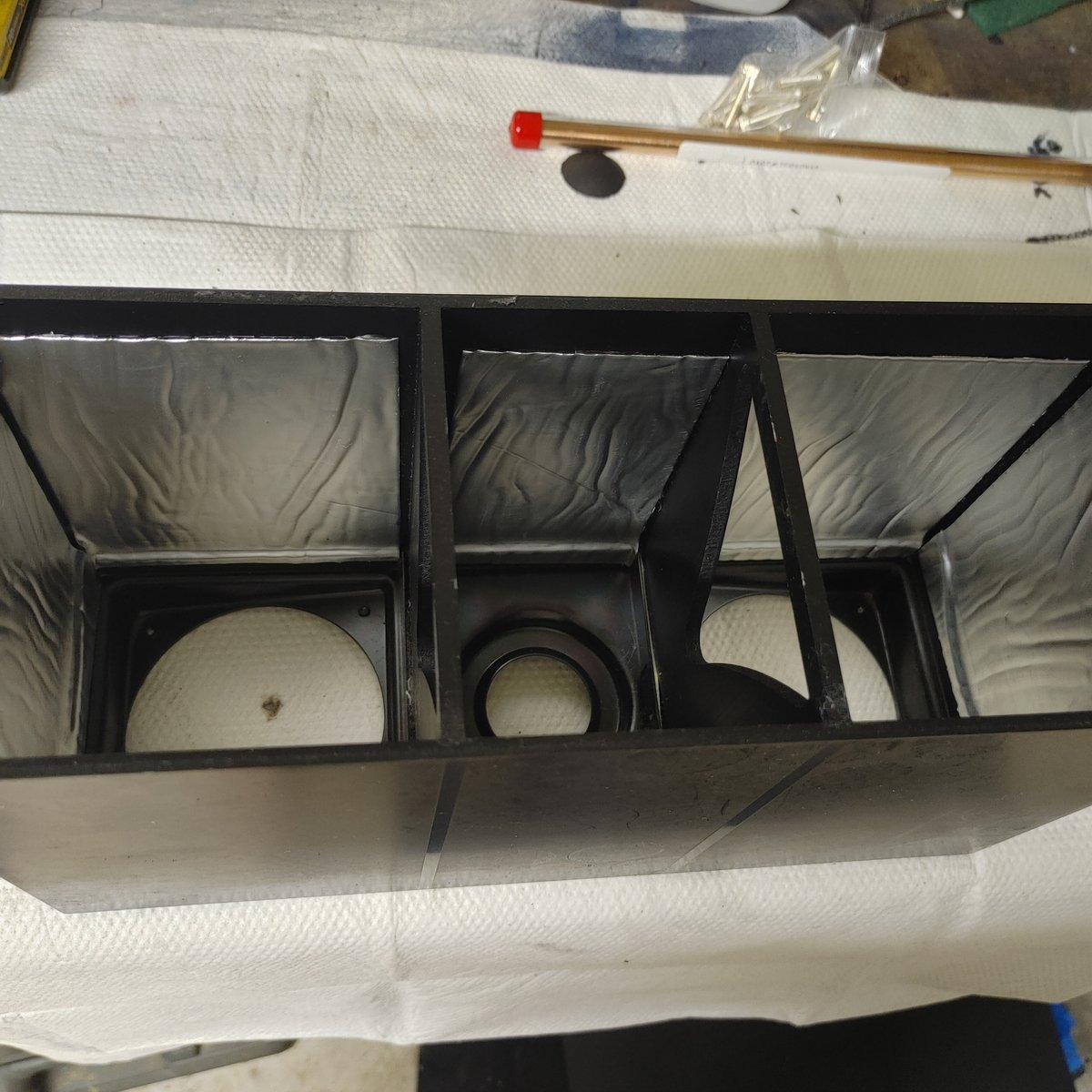
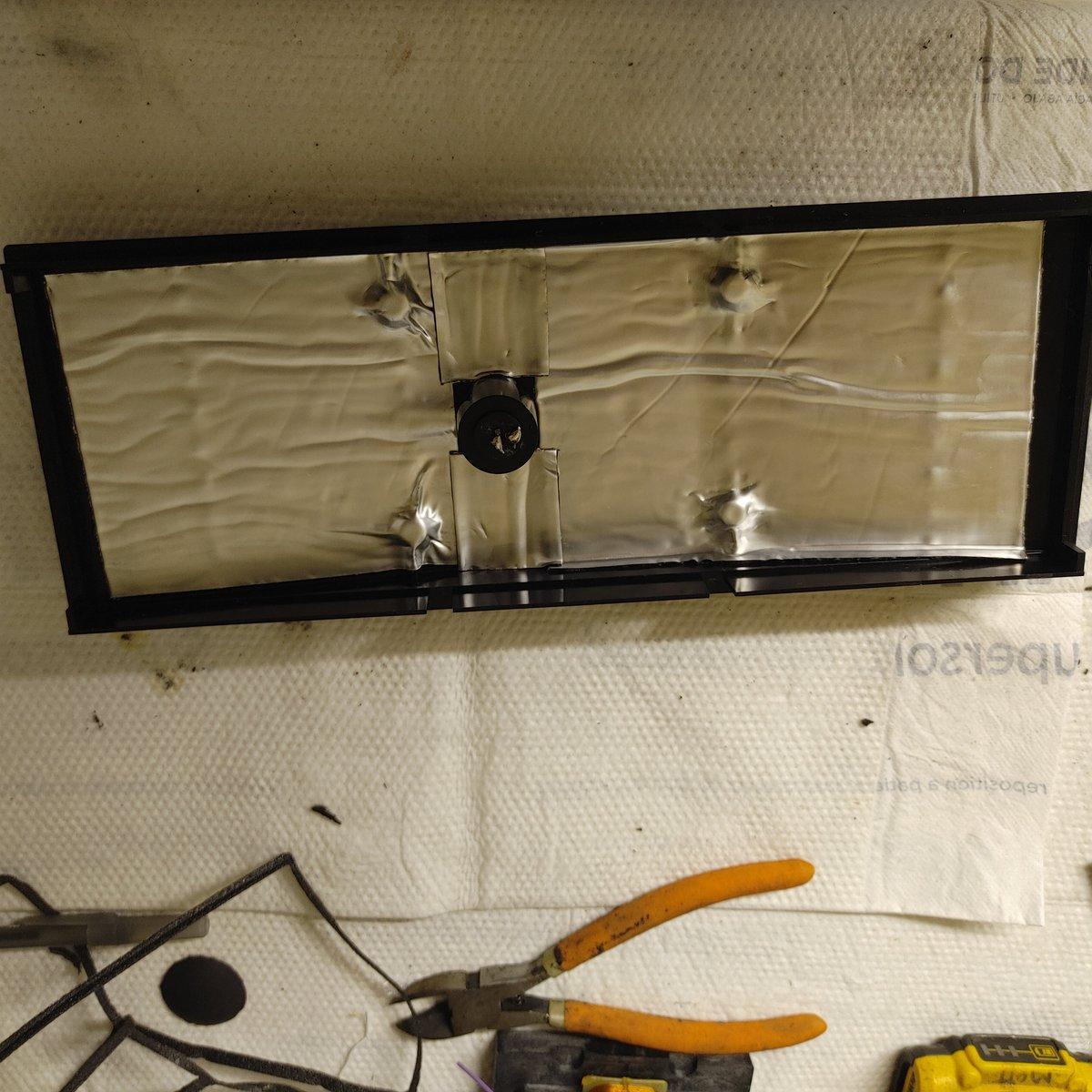
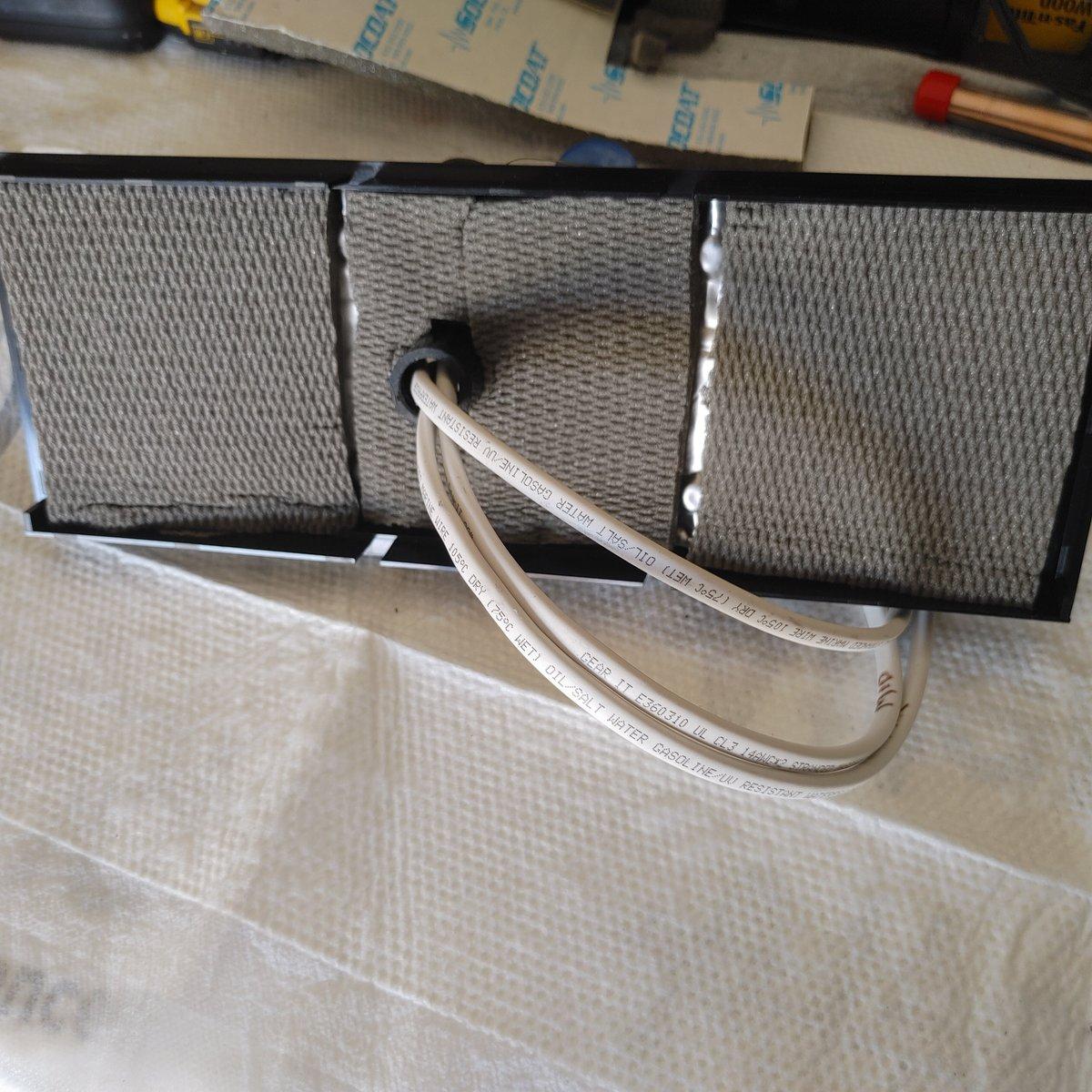
My only values are what hits my ears.
I have phase-plugged many different midrange drivers and foam-frame quite a few brands also, mainly vintage Polk. Many others have followed suit ad I plugged and foamed a multitude of Polk drivers for many vintage Polk owners. You can read about what phase plugs do to mitigate the drivers’ cross cone frequency cancellation/destruction. Voices, cymbals and low sax for instance become more coherent by adding them. The open-cell foam inside the baskets prevent the backwaves from returning to the cones and coloring the sound.
That said, these B&O cabinets are a thinner alloy and took too a few other modifications like butyl mating the interiors to ameliorate the last bit of cabinet resonances I was hearing/experiencing. I also added a5/8″ layer of open-cell foam on the back walls to nix any errant backwave. The combination is now contributing to the most accurate signal possible eminating from the transducers.
On recommendation from another CX100 owner I removed the factory tweeter’ s phase cup and machined a slightly wider profile billet alloy ring to the throat for wider dispersion… I also added real lamb’s wool to lower it’s FS and melt with the midrange that much better. I Am very happy I did so…
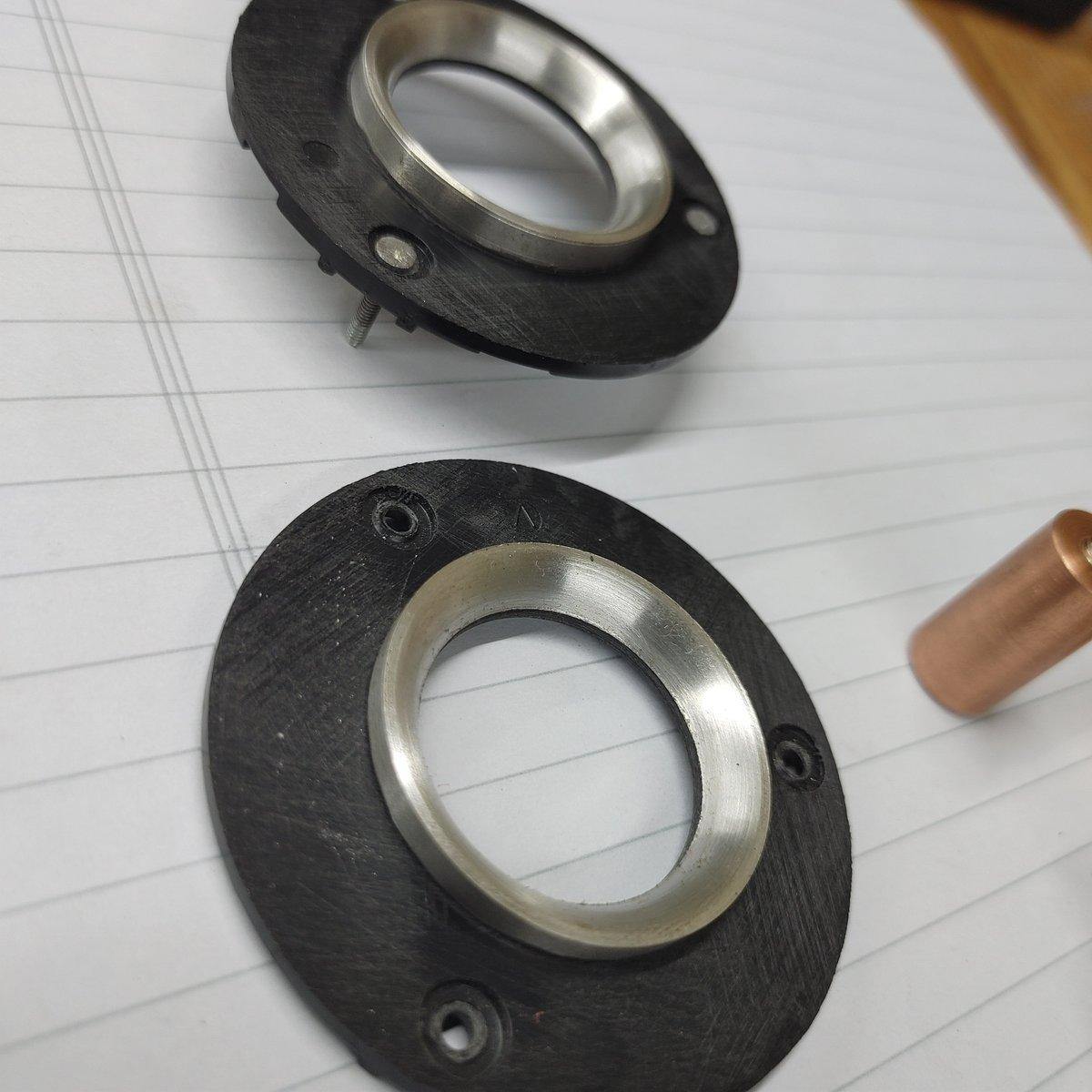
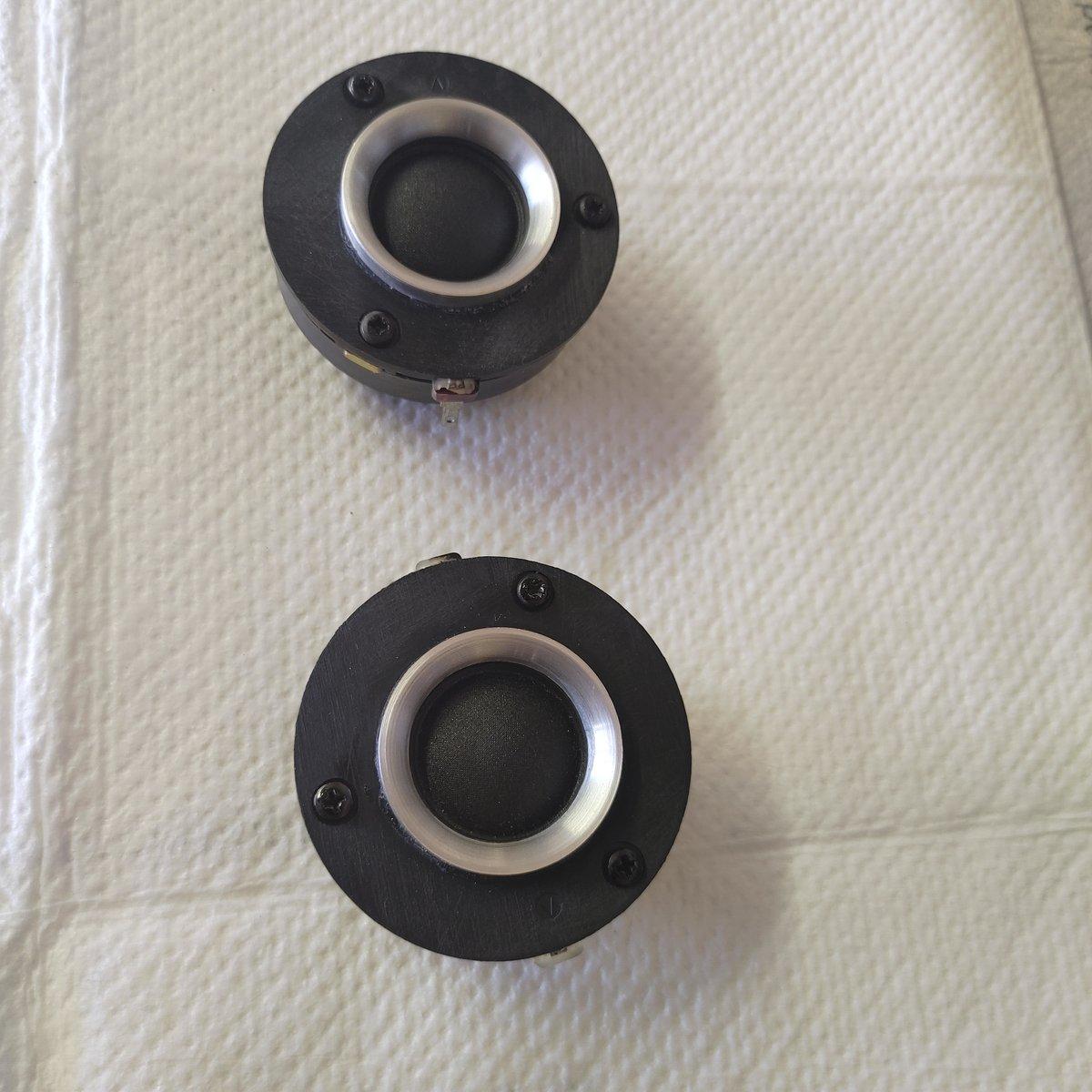
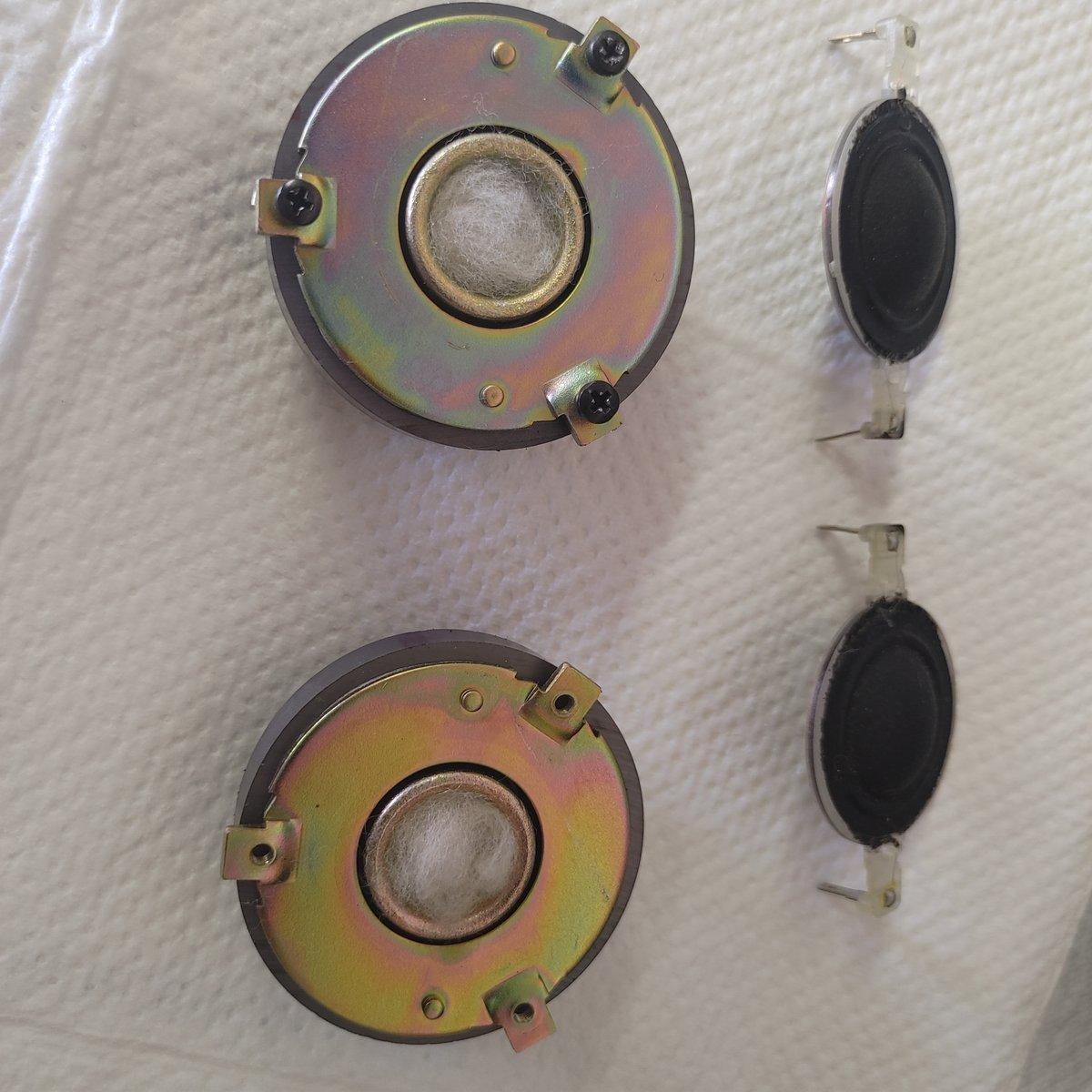
Found my build pics in those units to show a modification not mentioned previously to dampen the stamped-steel basket frames. Having done this to many other drivers with stamped steel baskets, I followed suit with fiber-reinforced butyl rubber gaskets and high density polyurethane rubber adhesives. This negates the ringing/resonance from the frames as well…
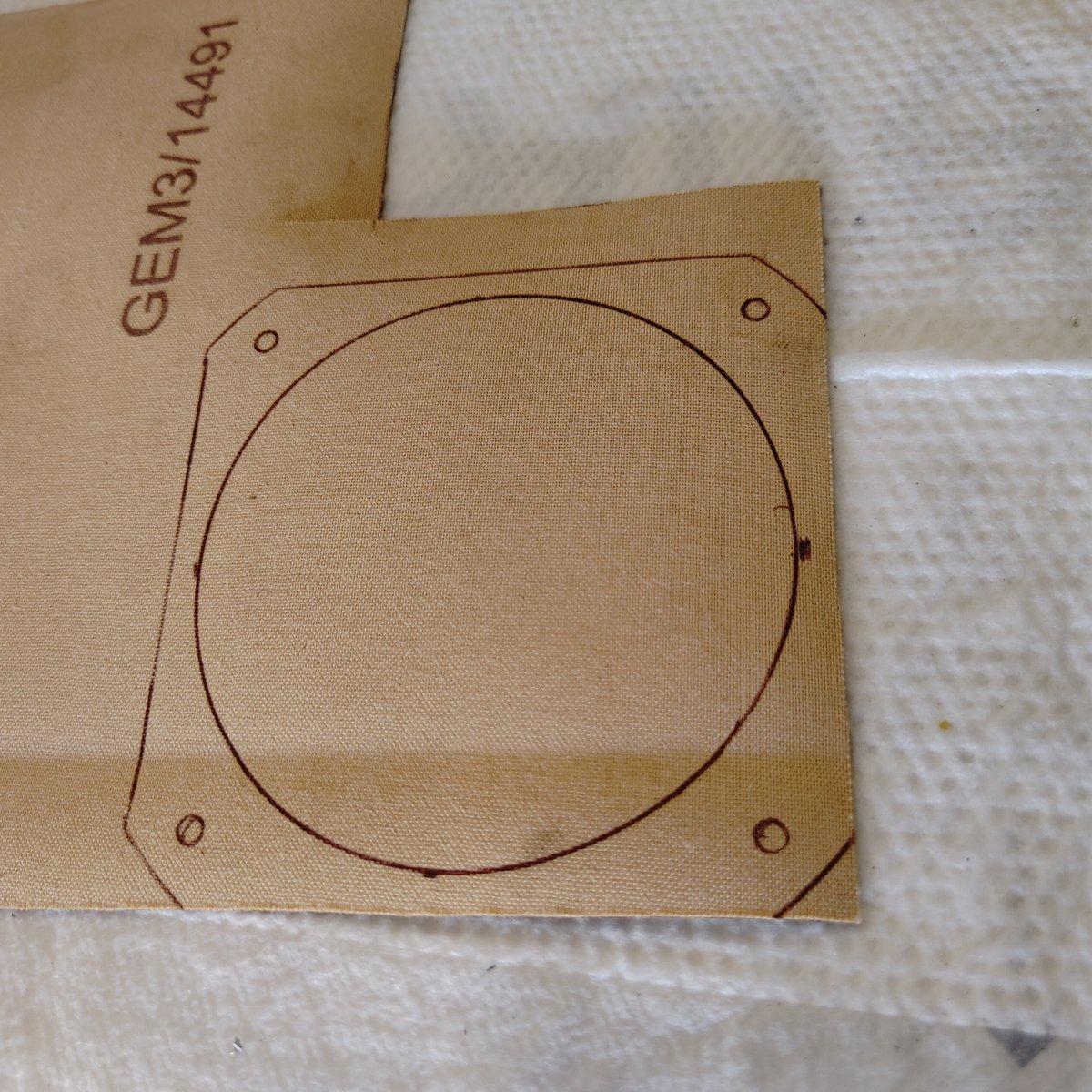
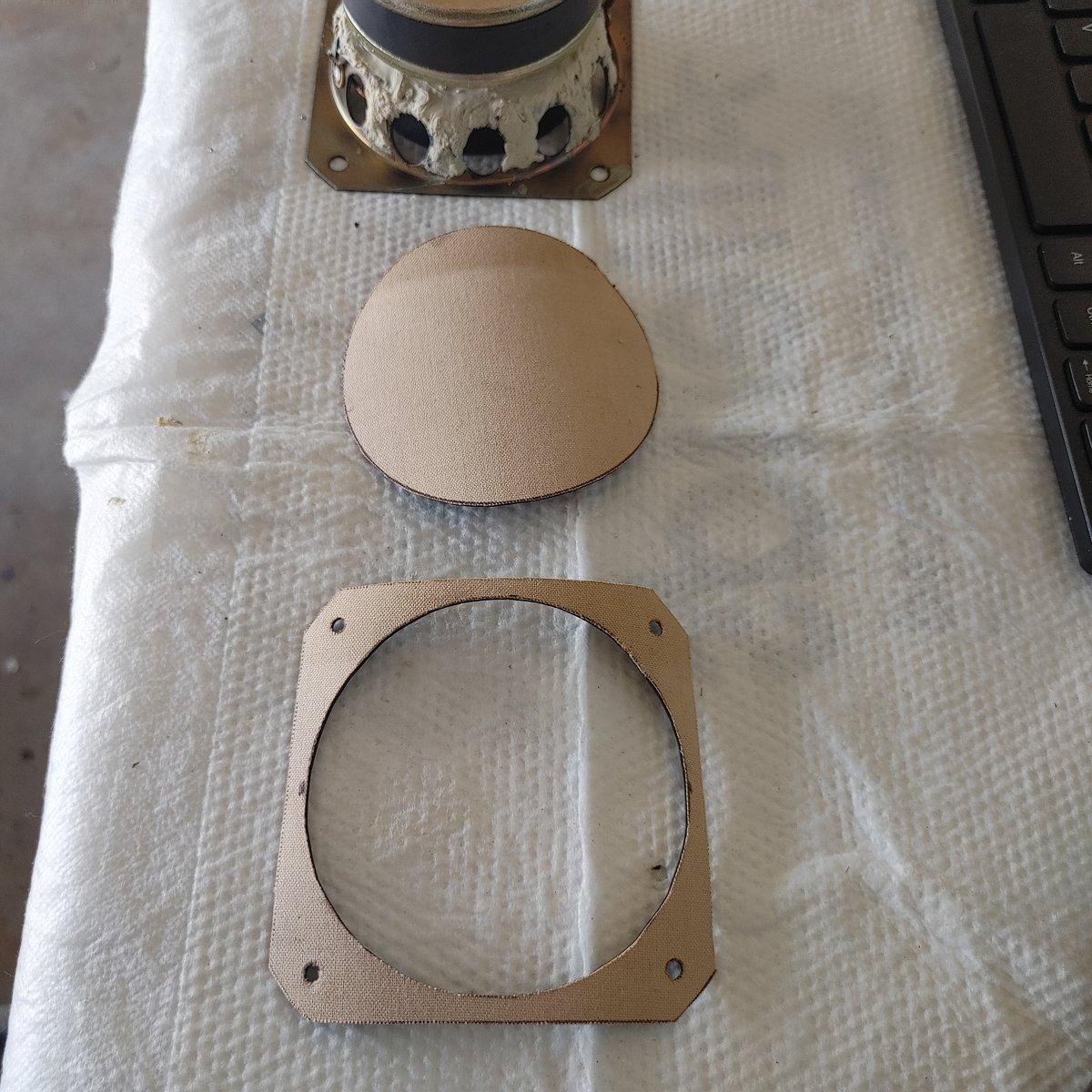
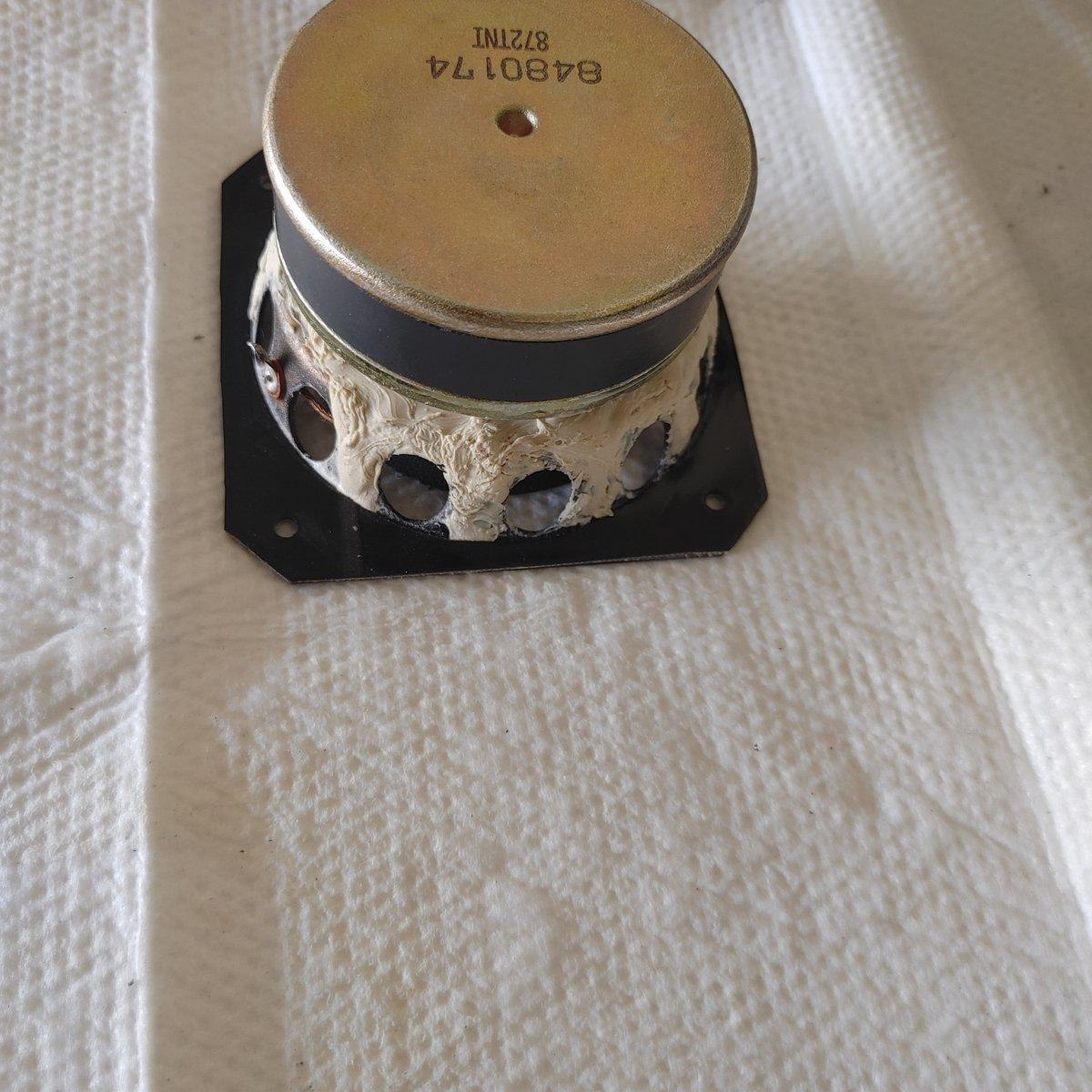
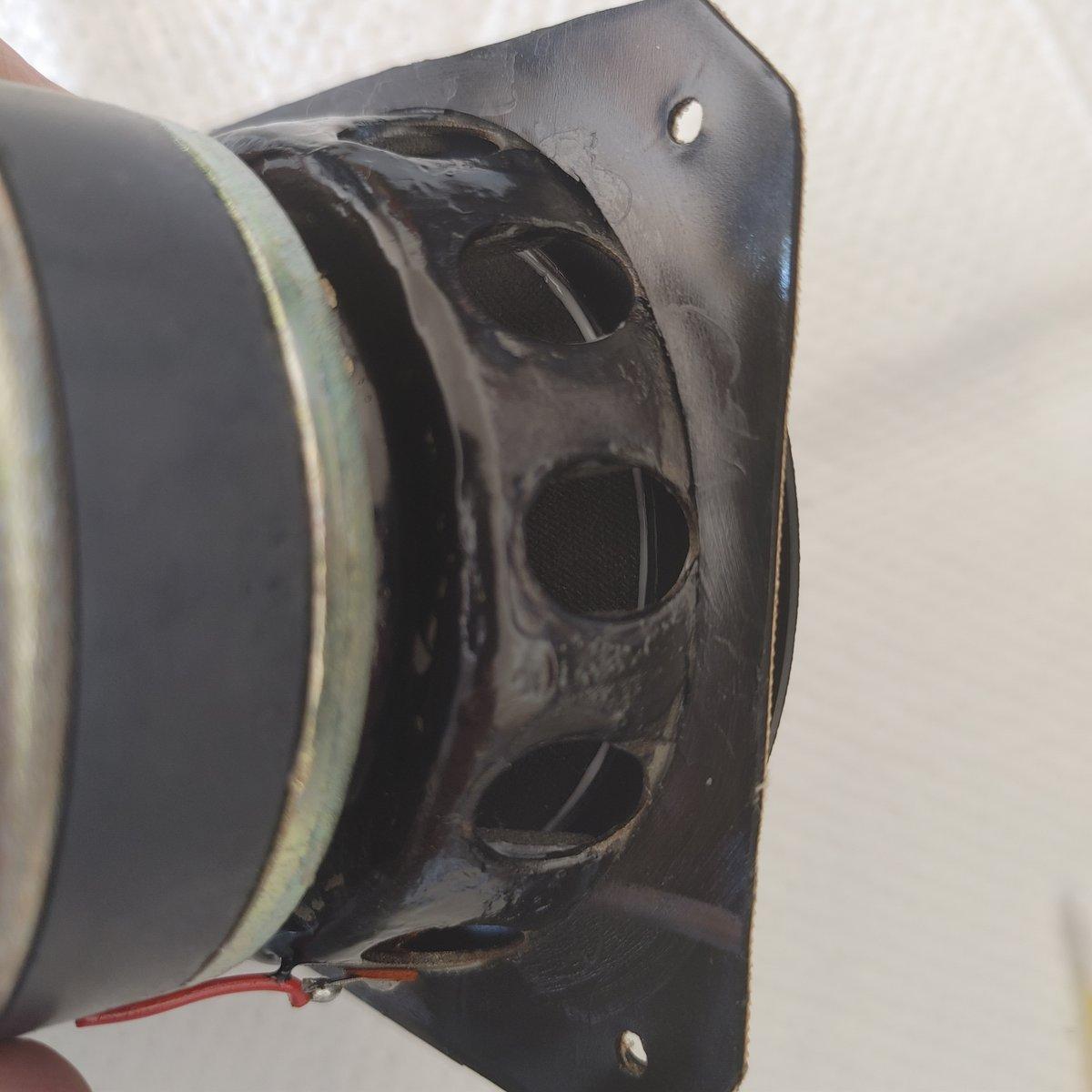
Oh indeed, typing on a smart phone renders one inattentive at times…
The CX30’s have a 4.7 ohm cast resistor in their crossover. I added the wire-wound resistor and new film capacitors as well…
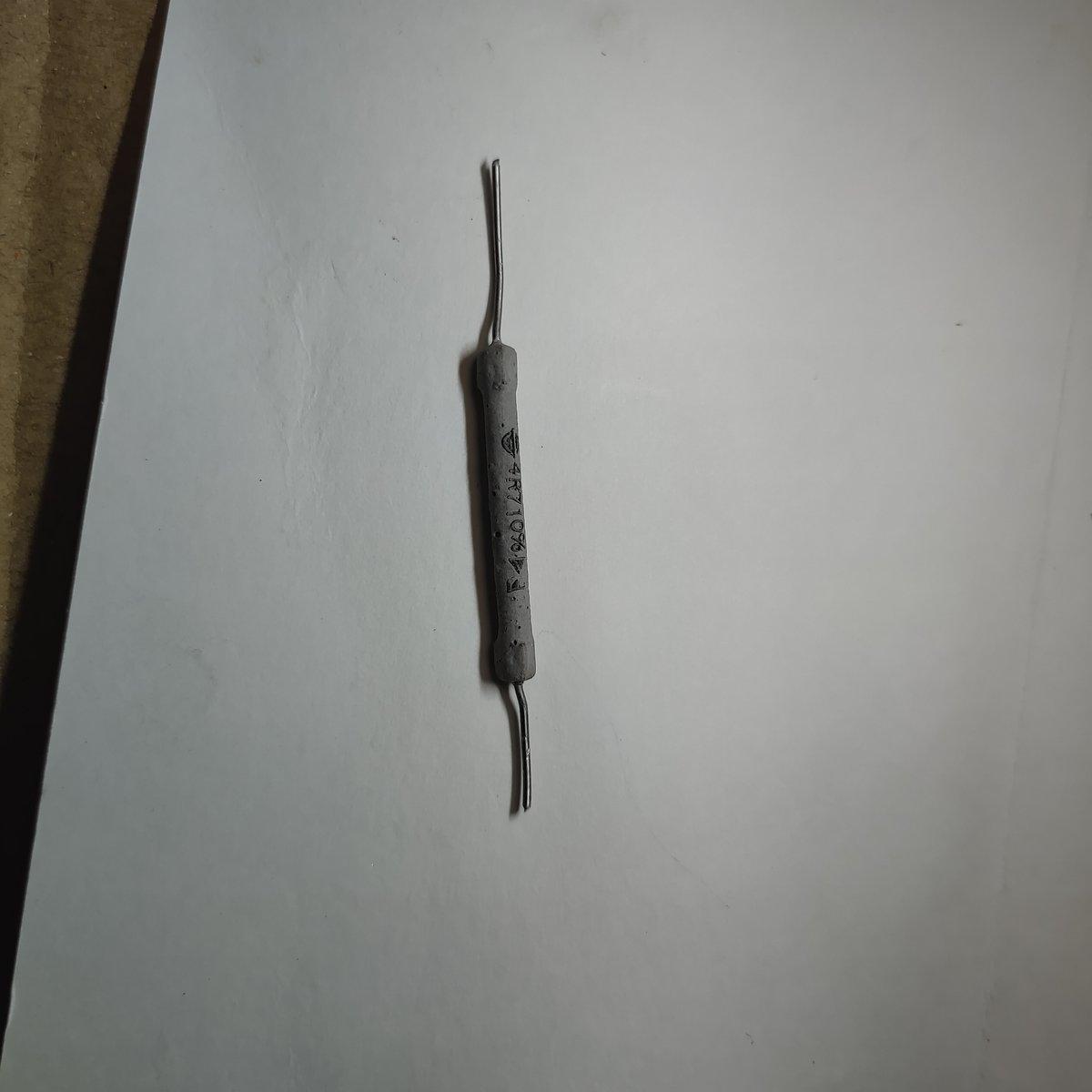
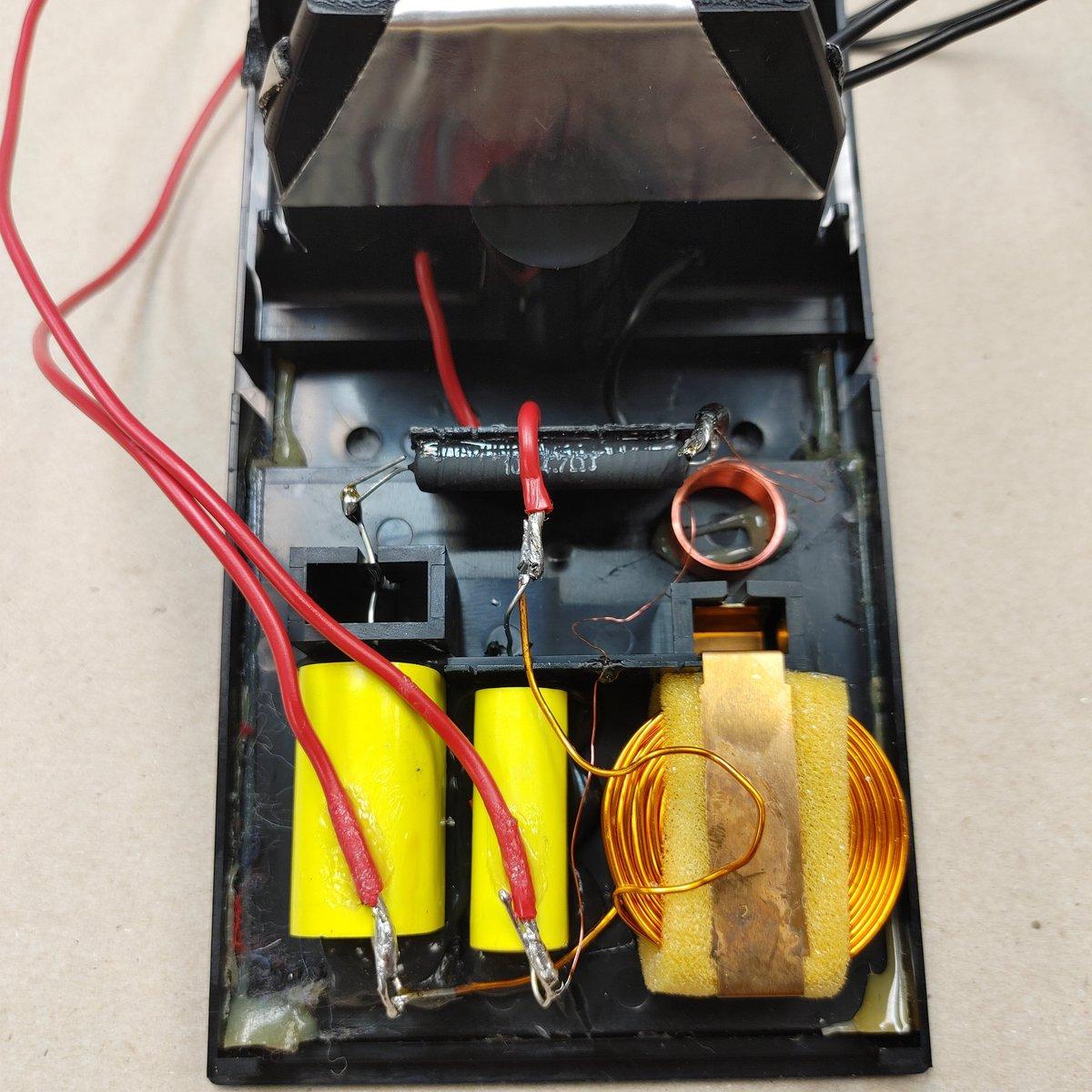
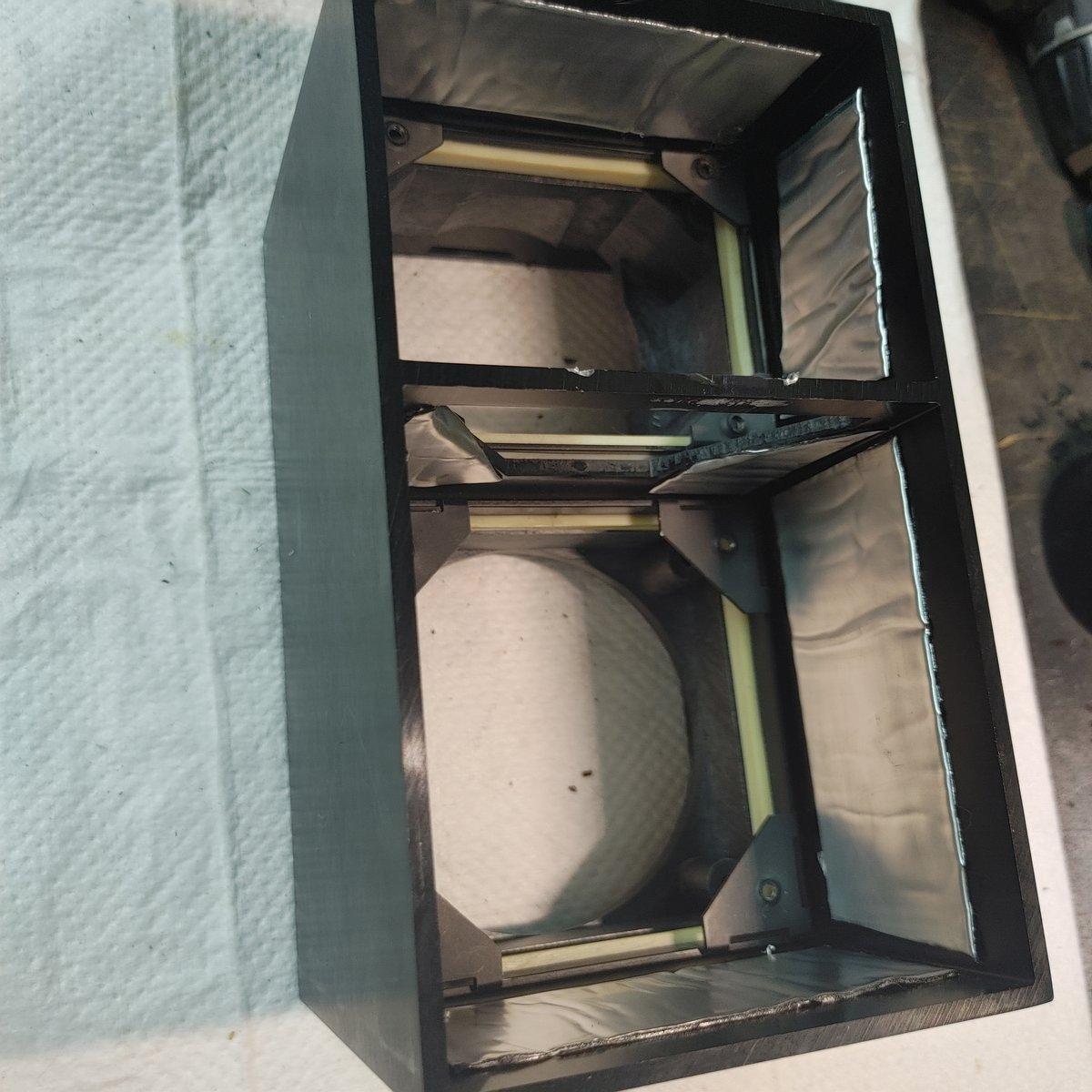
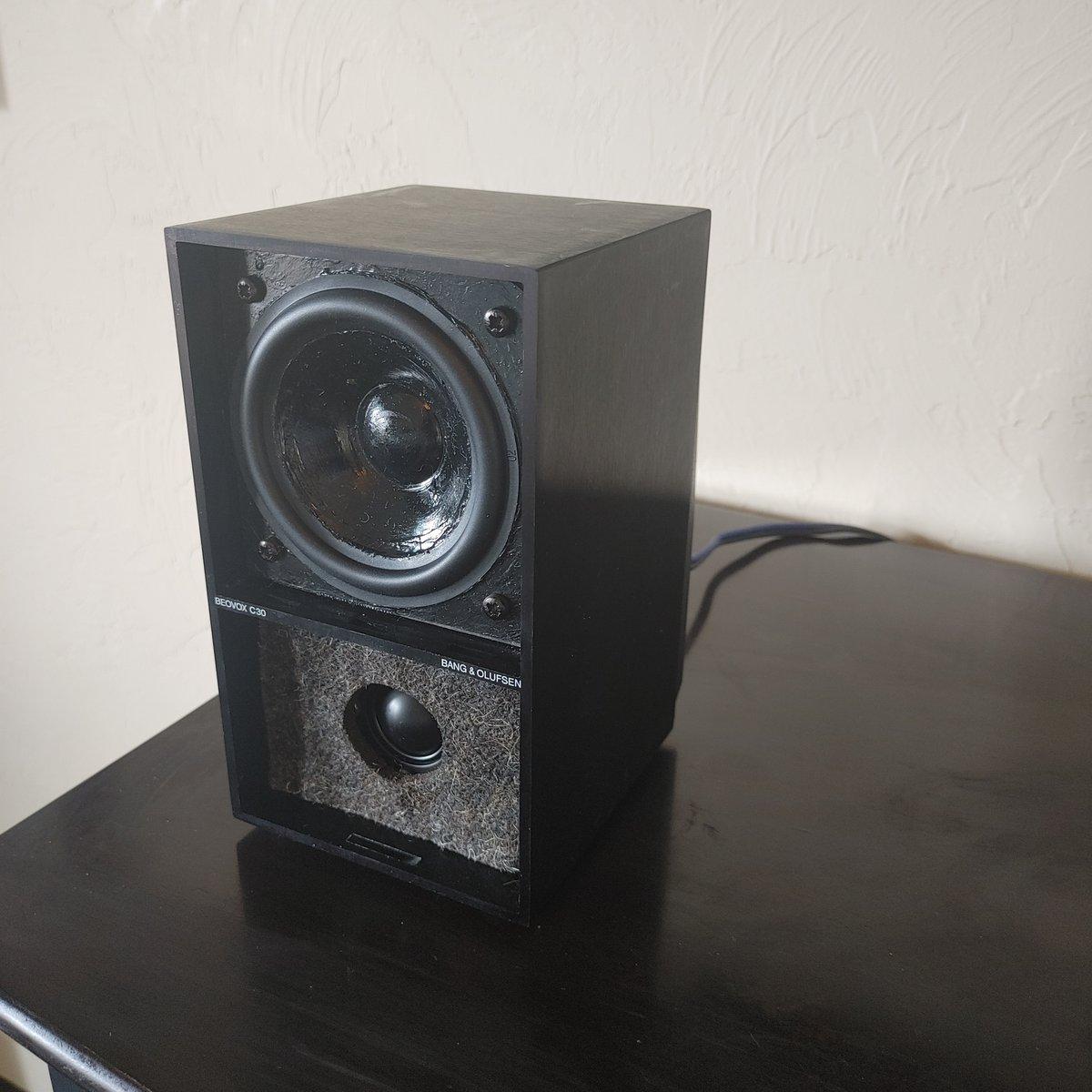 <!–more–>
<!–more–>After all said and done the CX30s trump the modified Polks
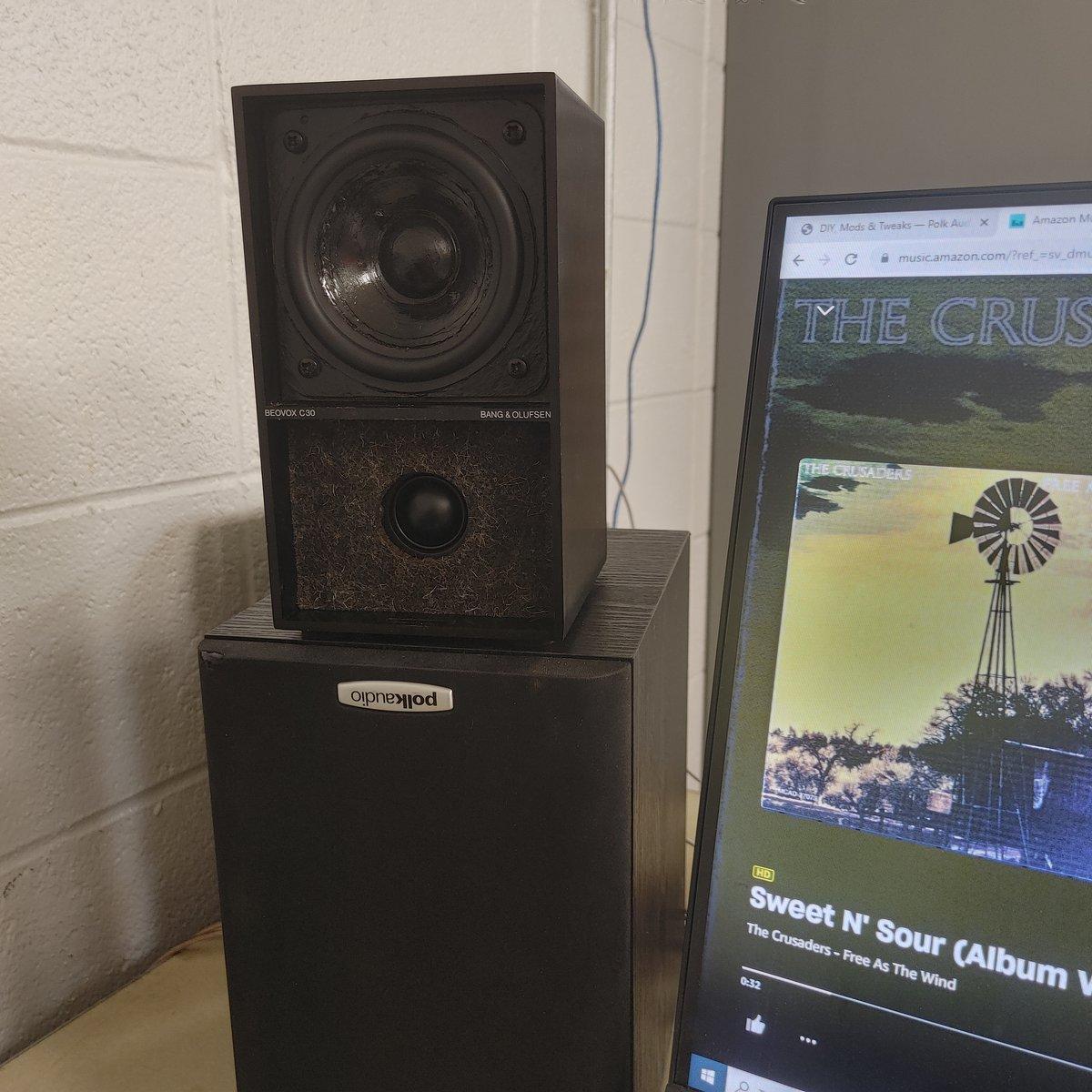 even with their exquisite sound signature and especially their tweeter’s sound reproduction
even with their exquisite sound signature and especially their tweeter’s sound reproductionaccuracy…
- Thank you. You did a fine job yourself, takes Alot of patience. Yes, I painted the frames satin black to match the cones. I rebuilt crossovers with film caps and wire-wound resistors. I also machined and phase-plugged the midranges, as well as foamed the inner baskets frames for ultimate clarity. I’m running them in conjunction with a rebuilt Polk RM-1000 subwoofer and custom tpa3255 amp to match aesthetically. Pure audio bliss.
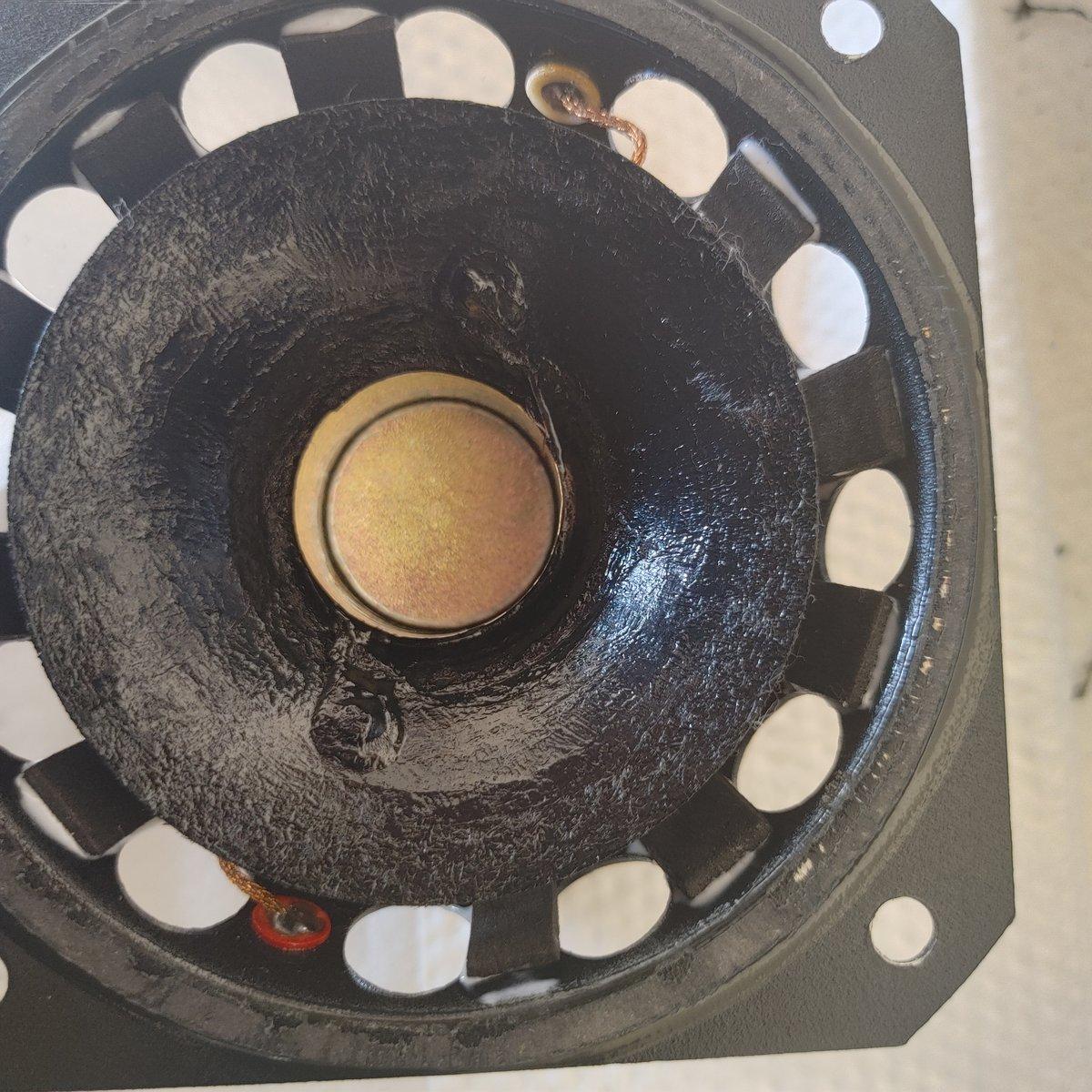
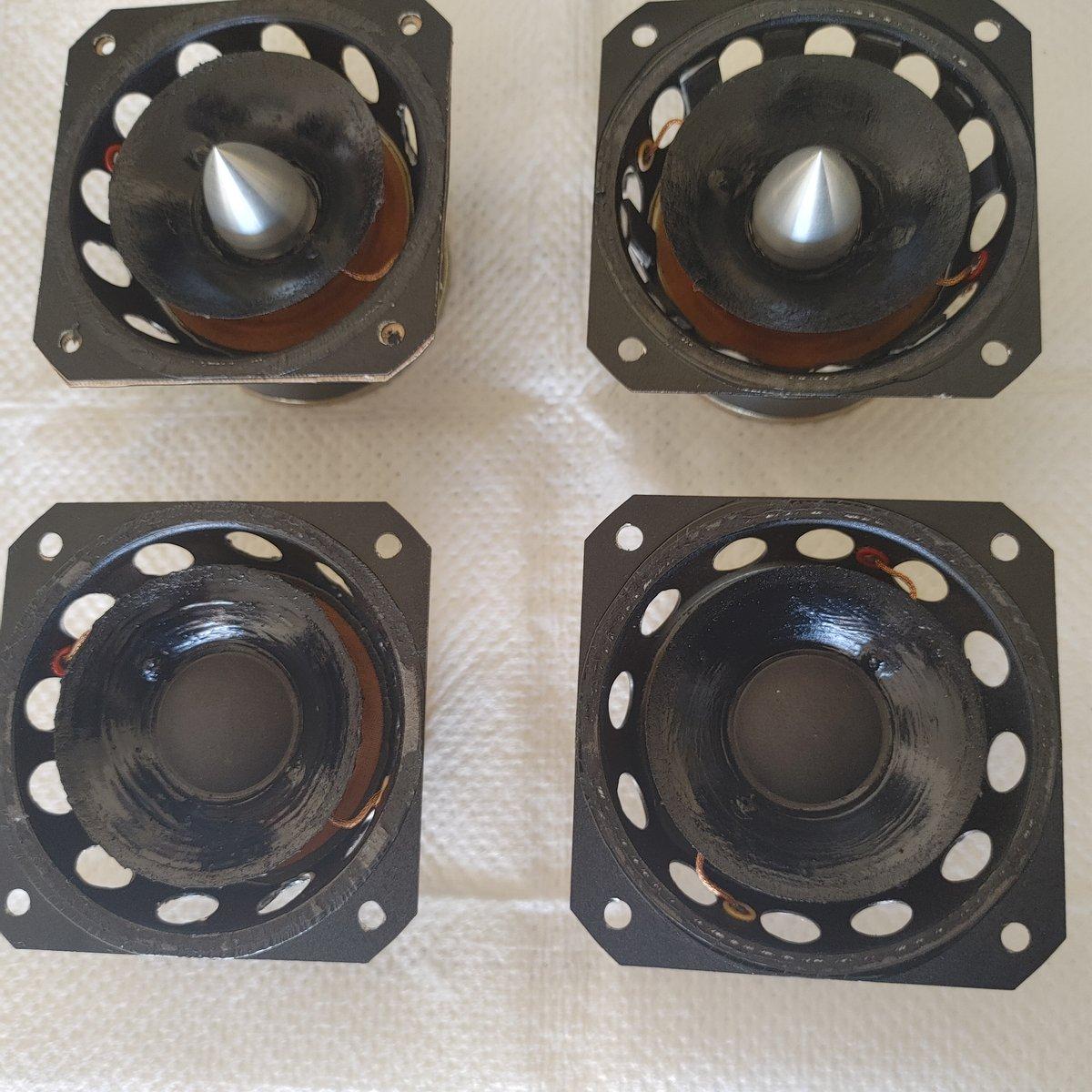
I changed my CX30’s and CX100’s to butyl surrounds and doped the cones. It greatly improved the midrange, yet slightly lowered SPL of the lower bass frequencies. Was a win/win running them with a subwoofer.
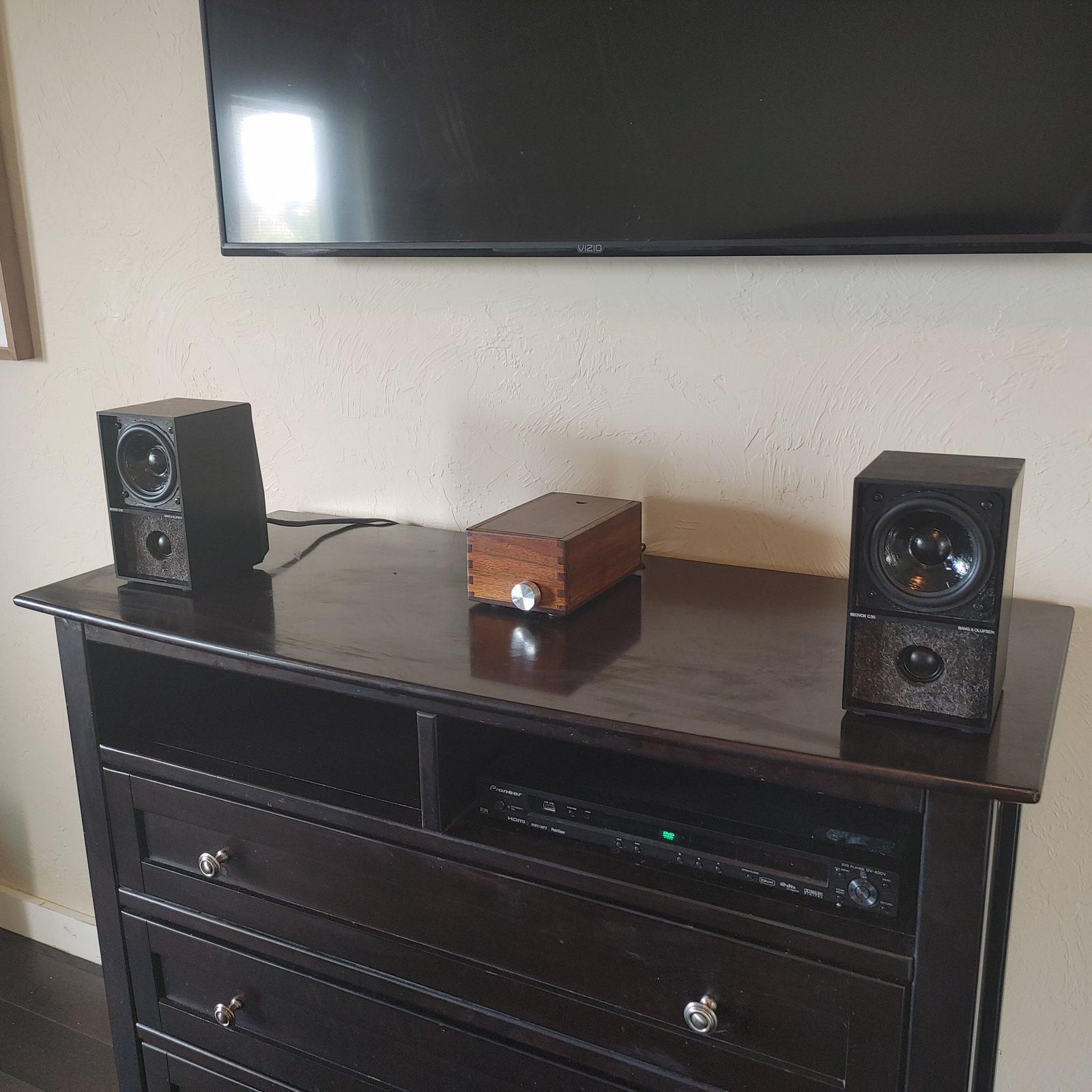
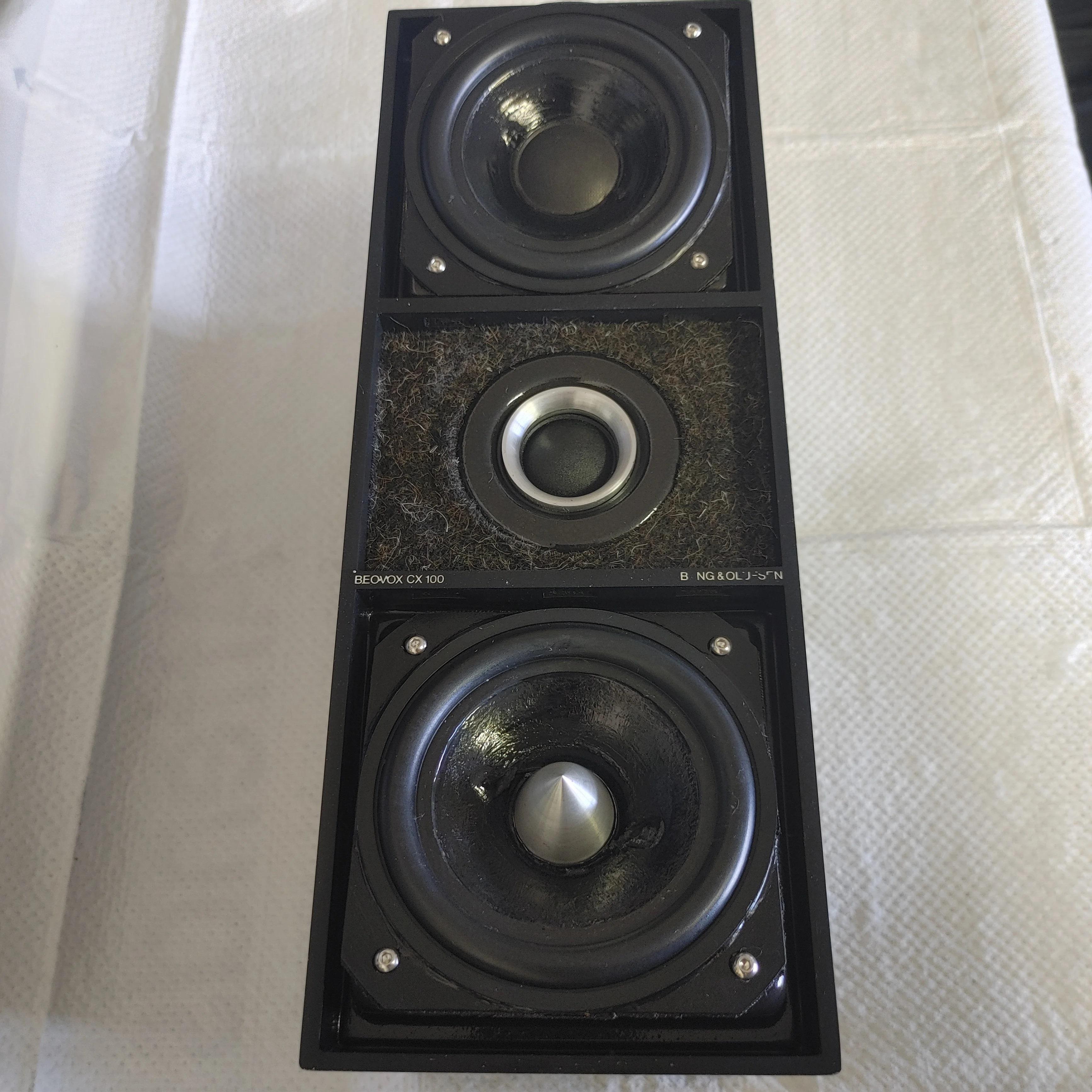
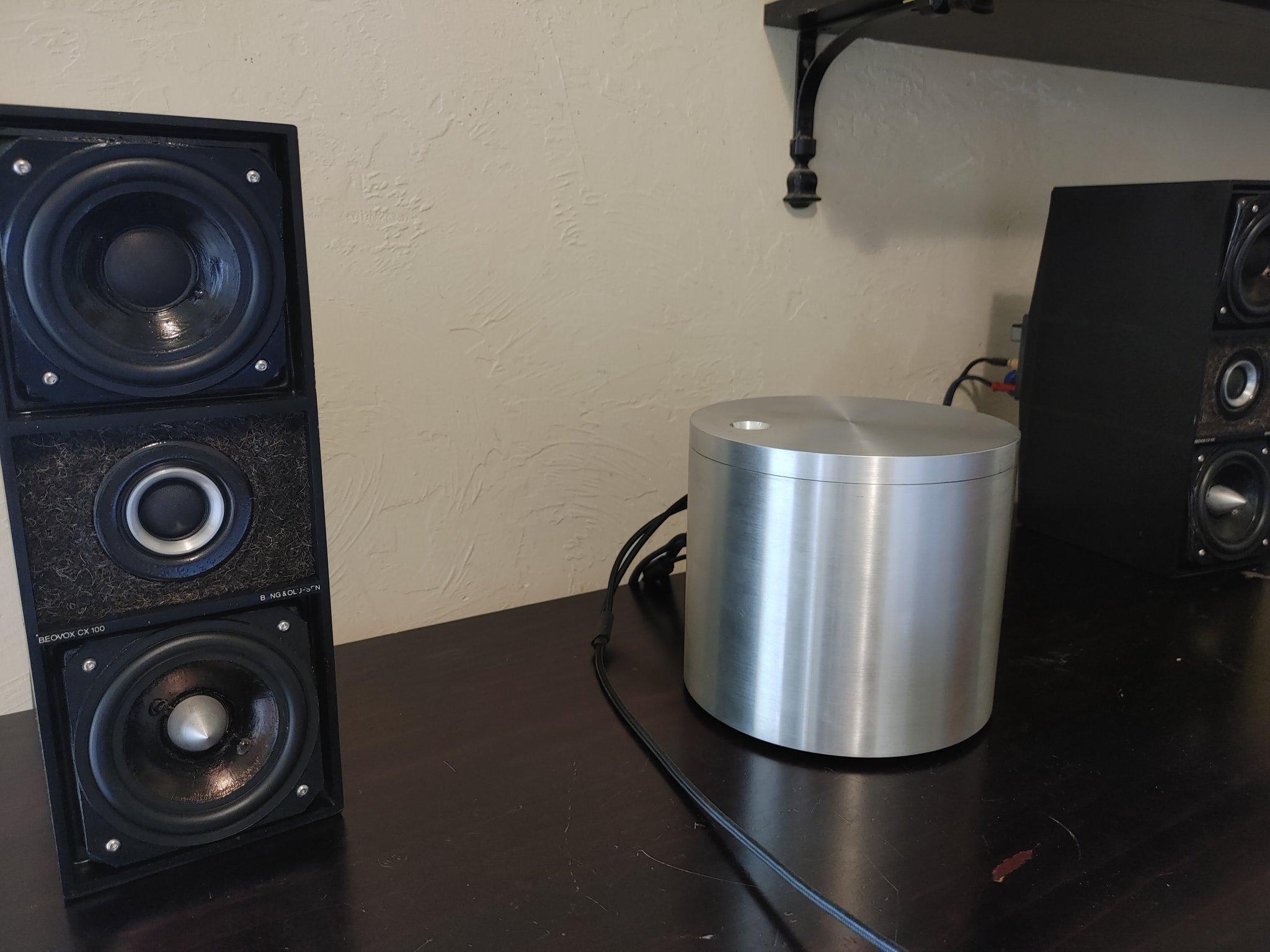
- AuthorPosts
